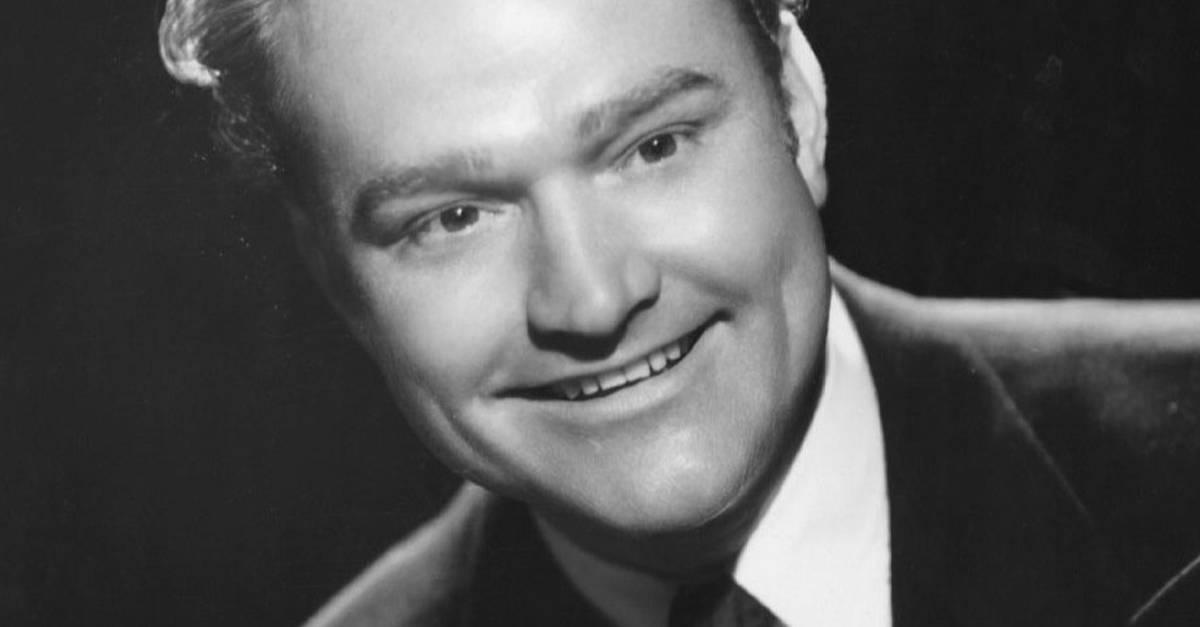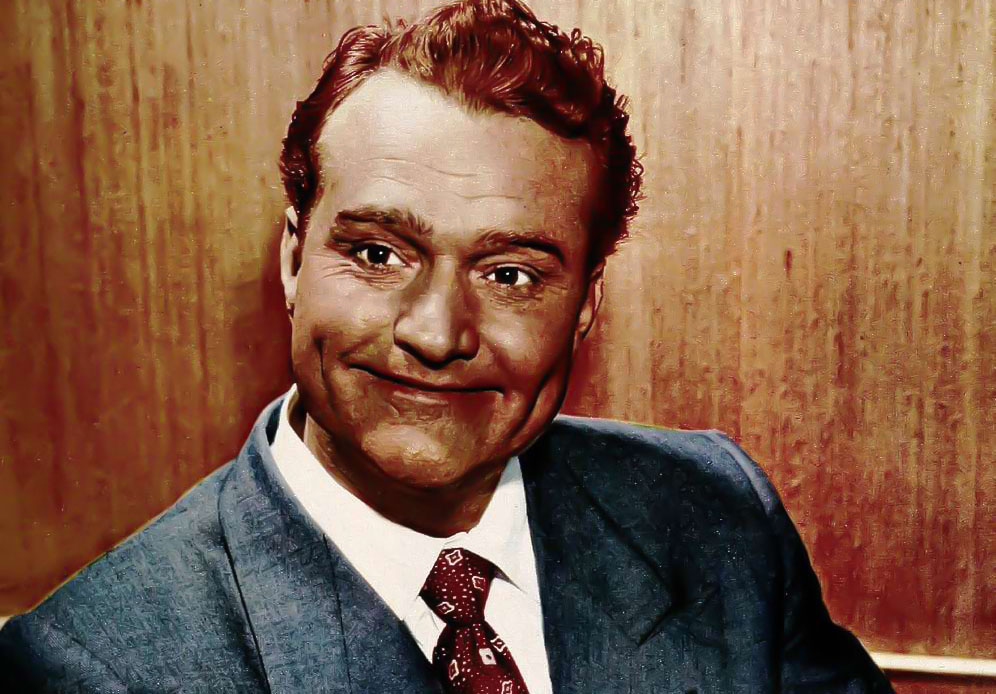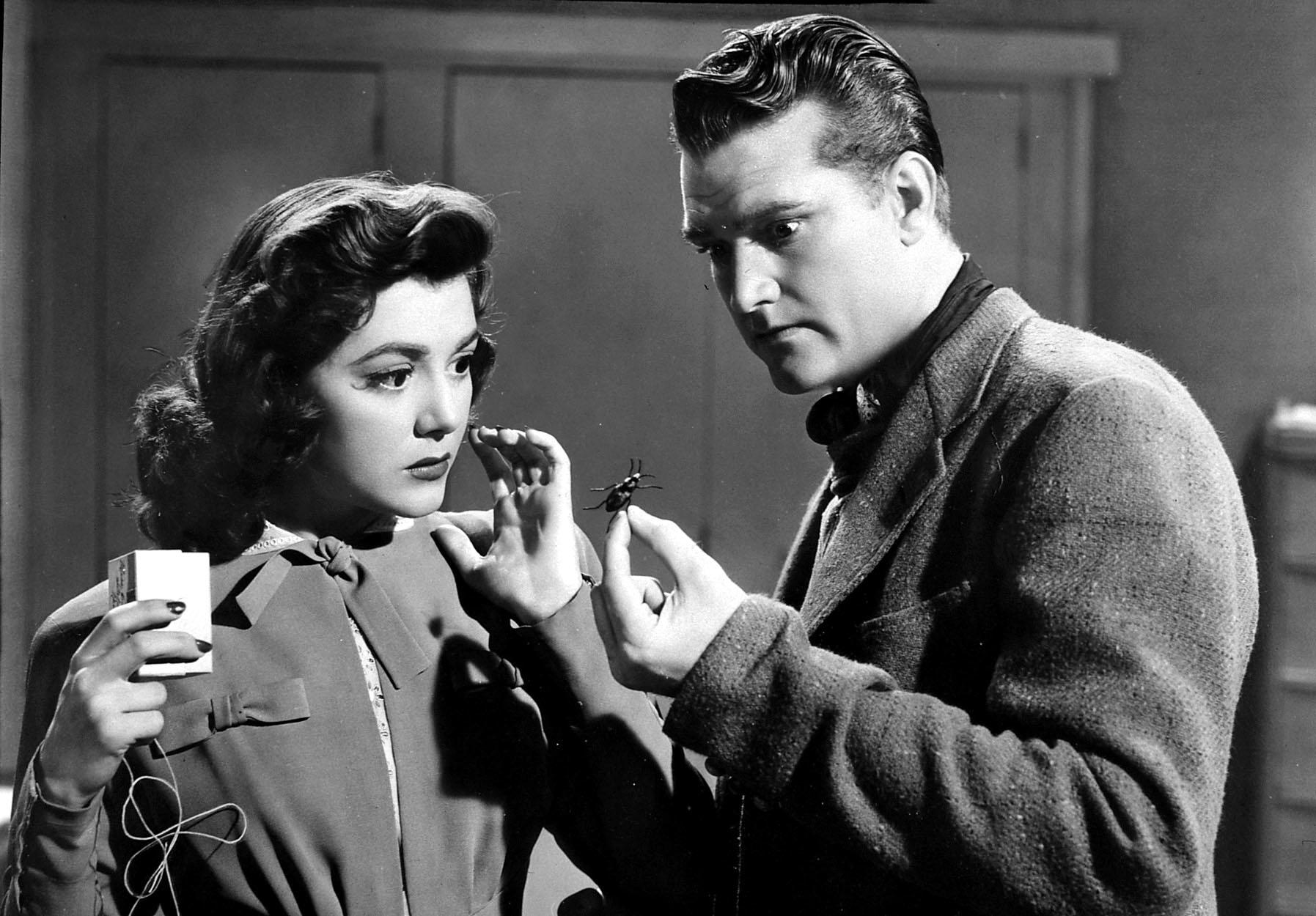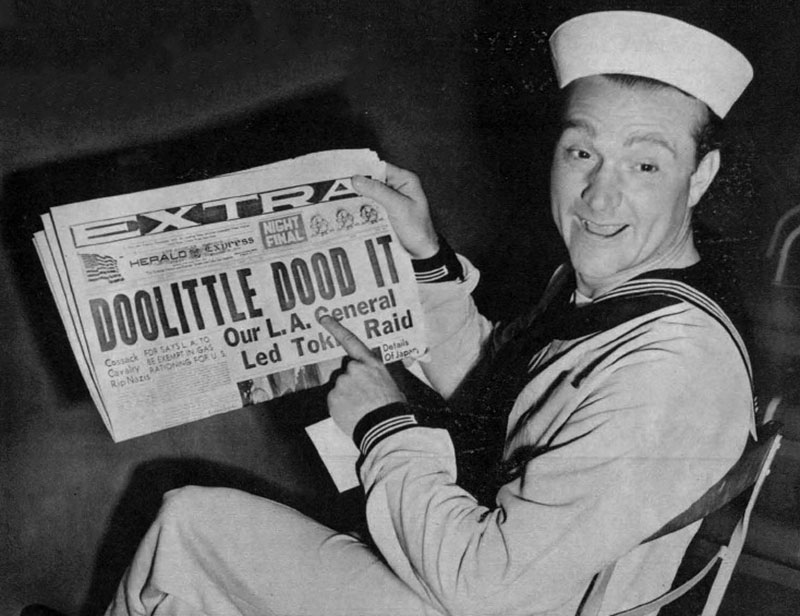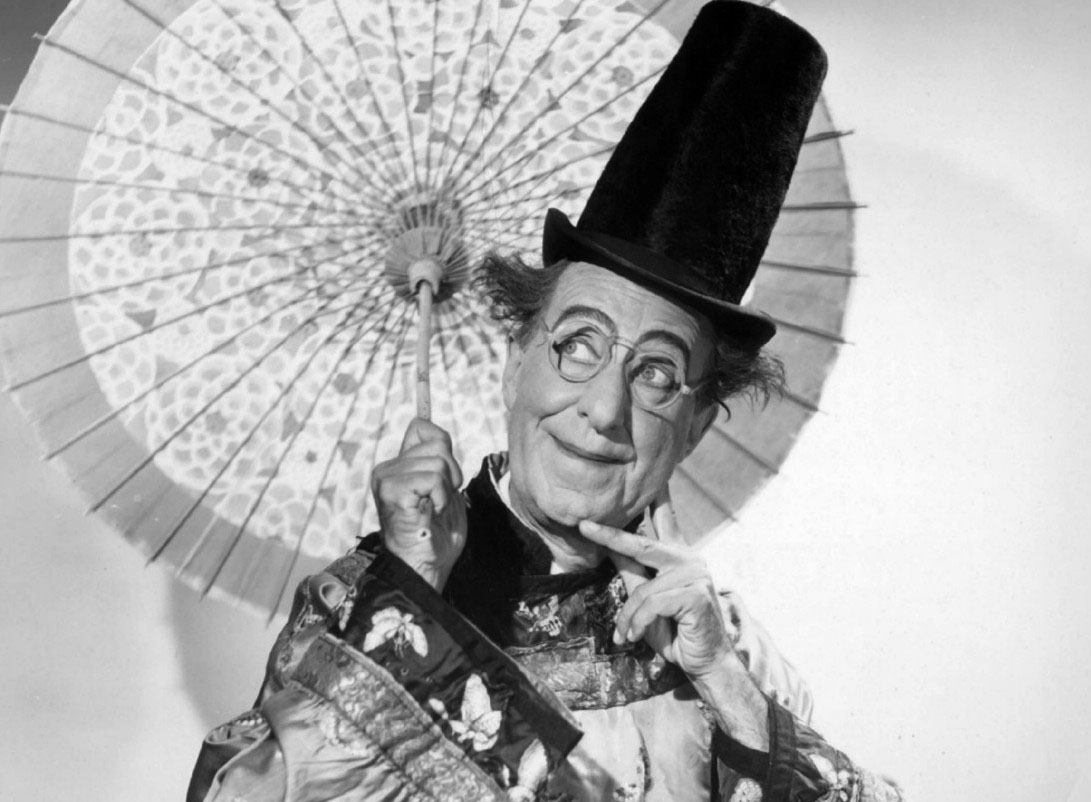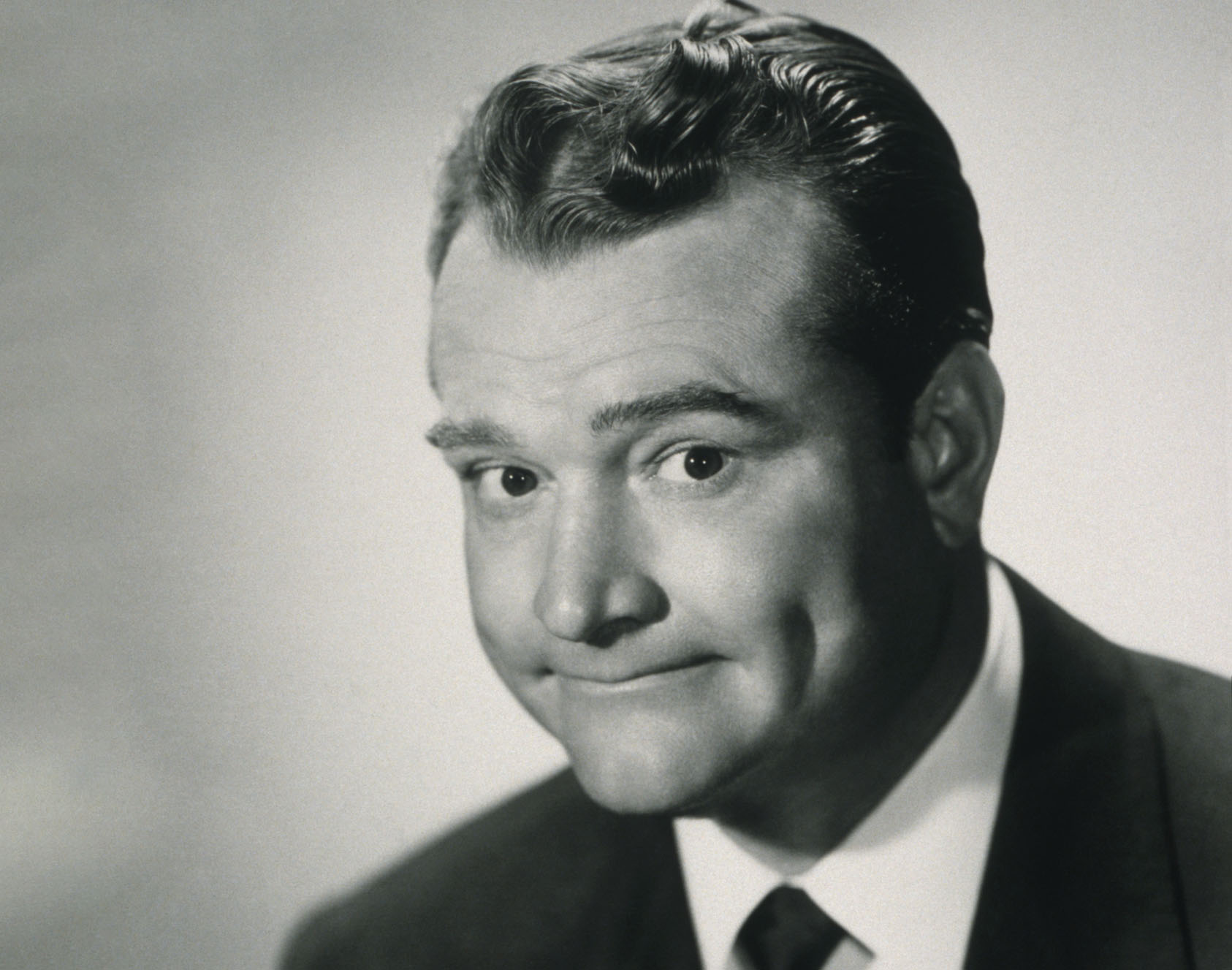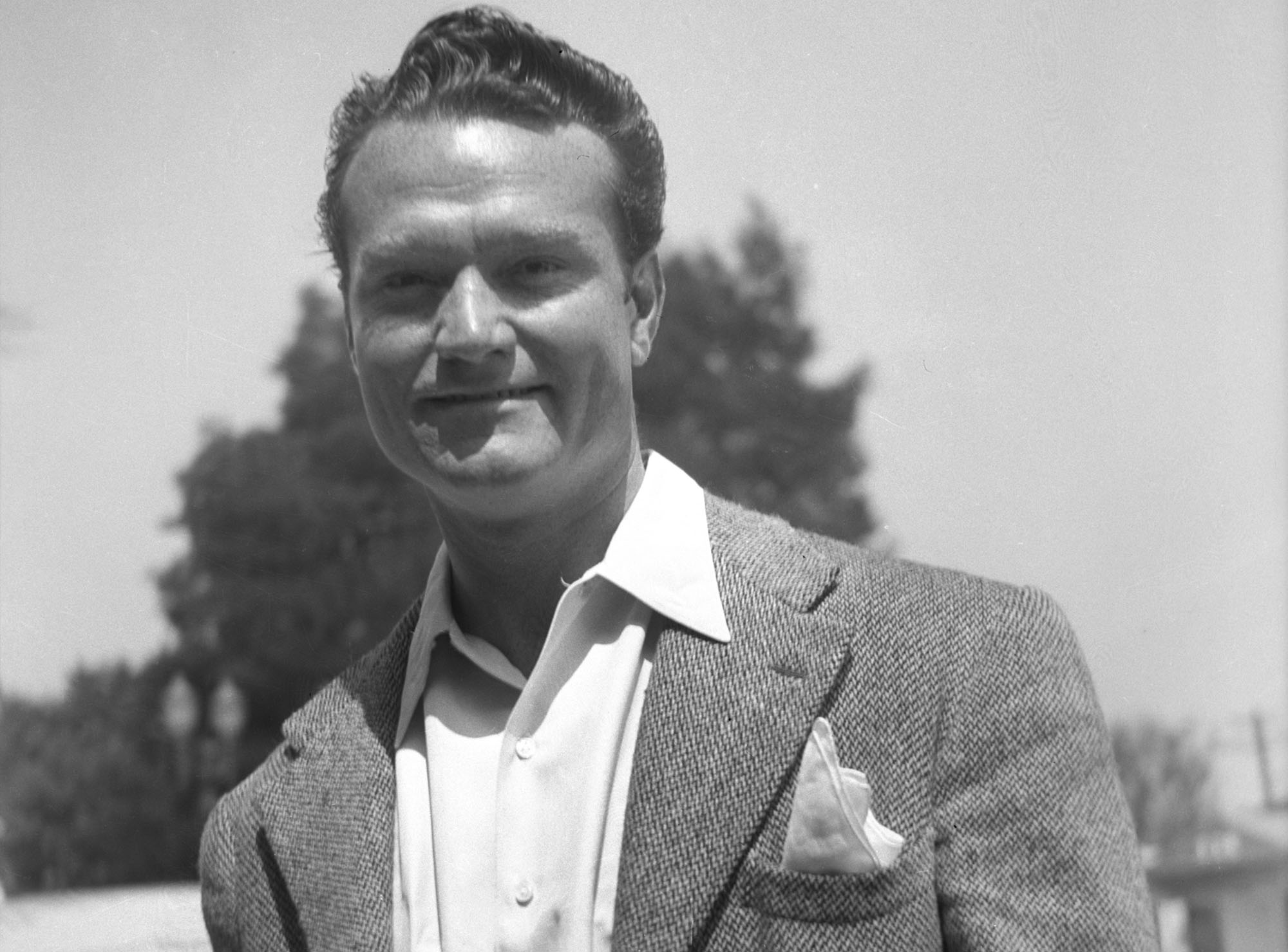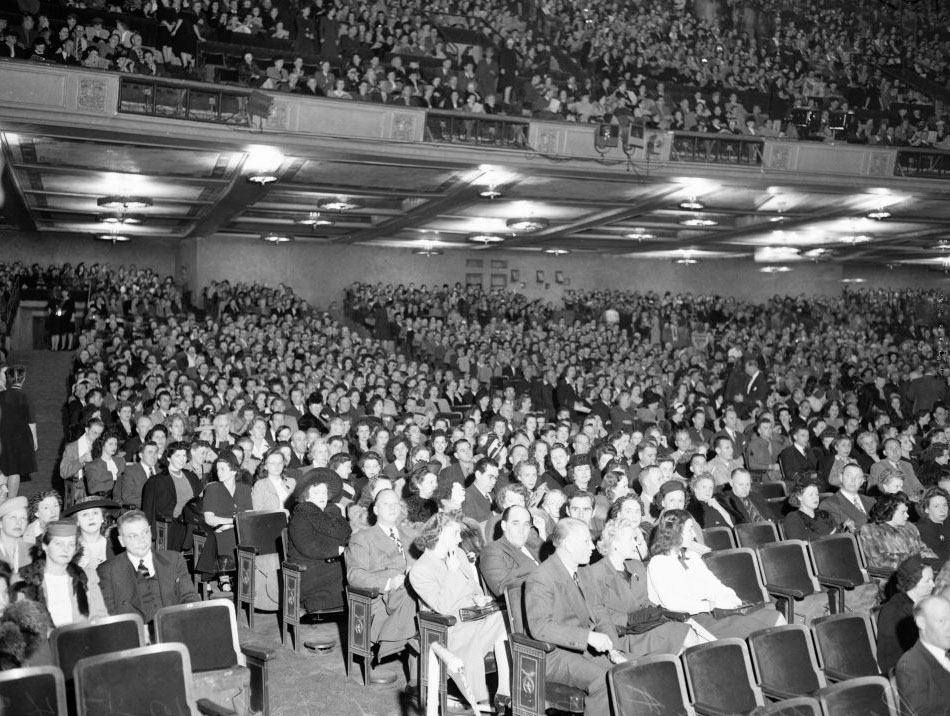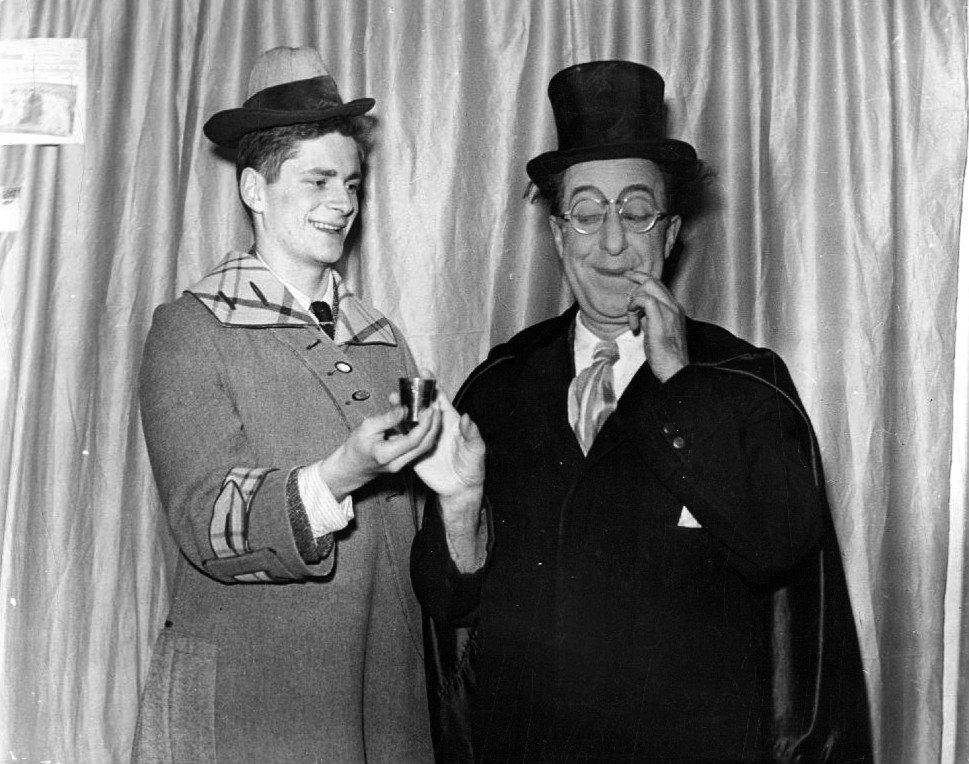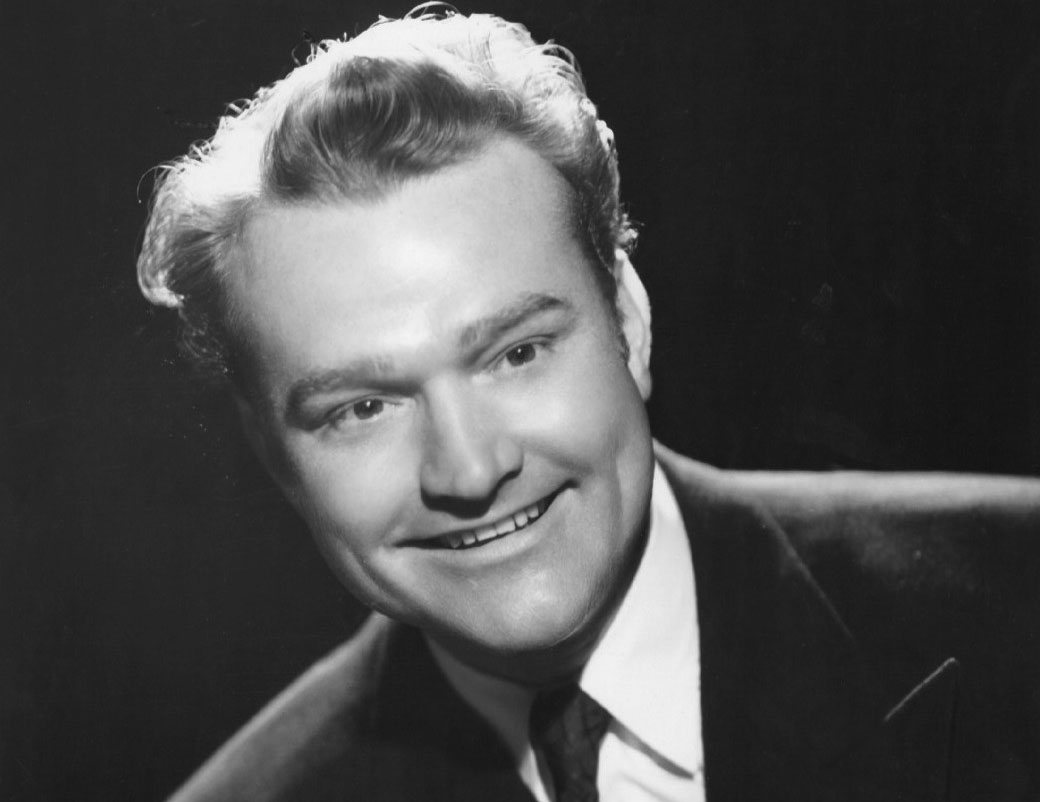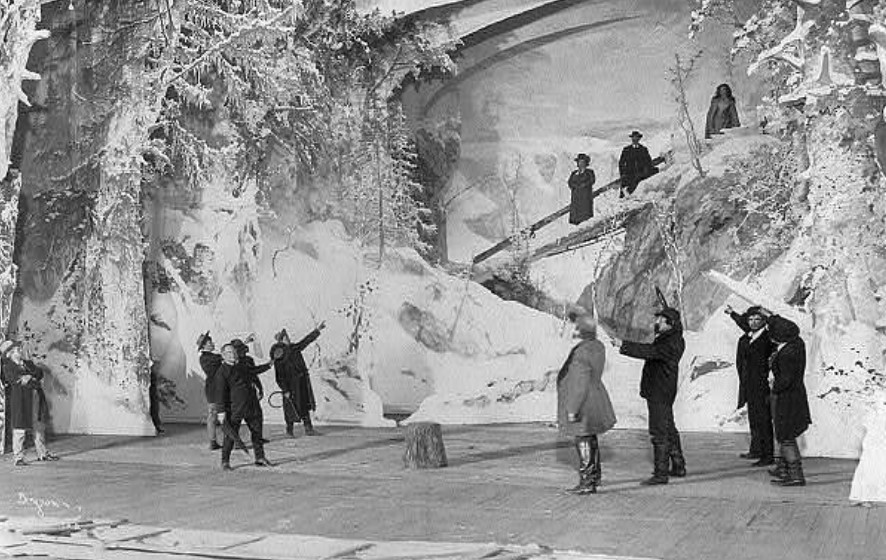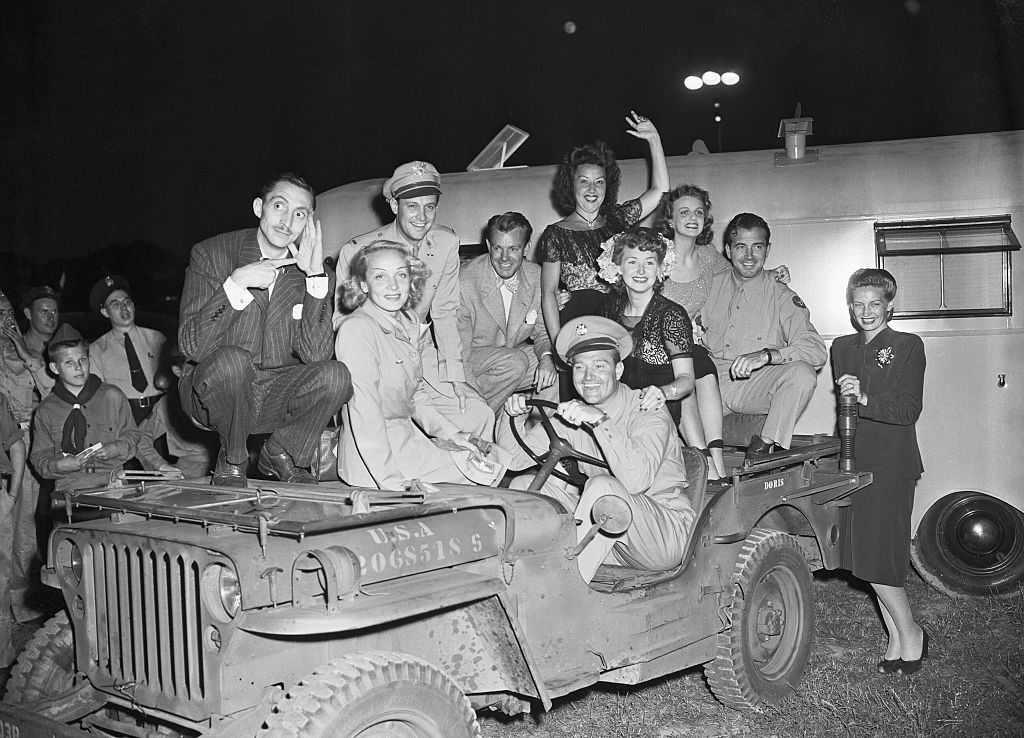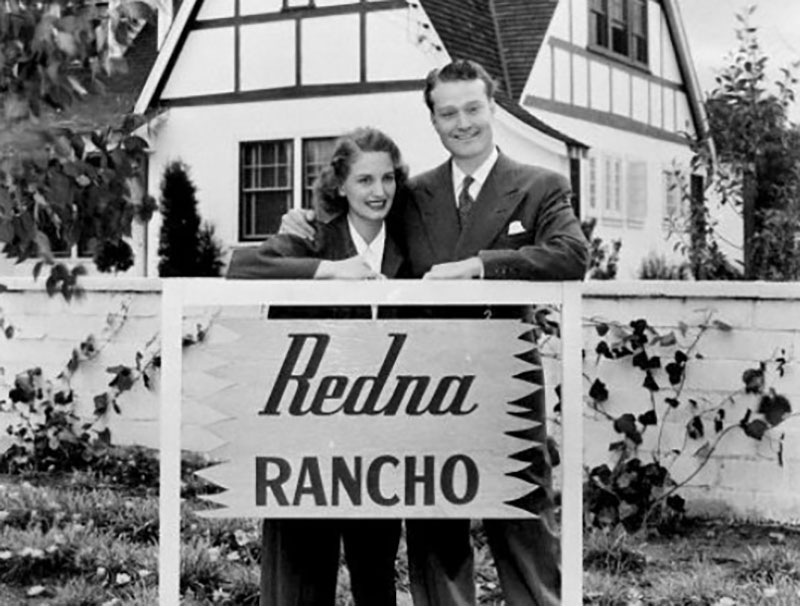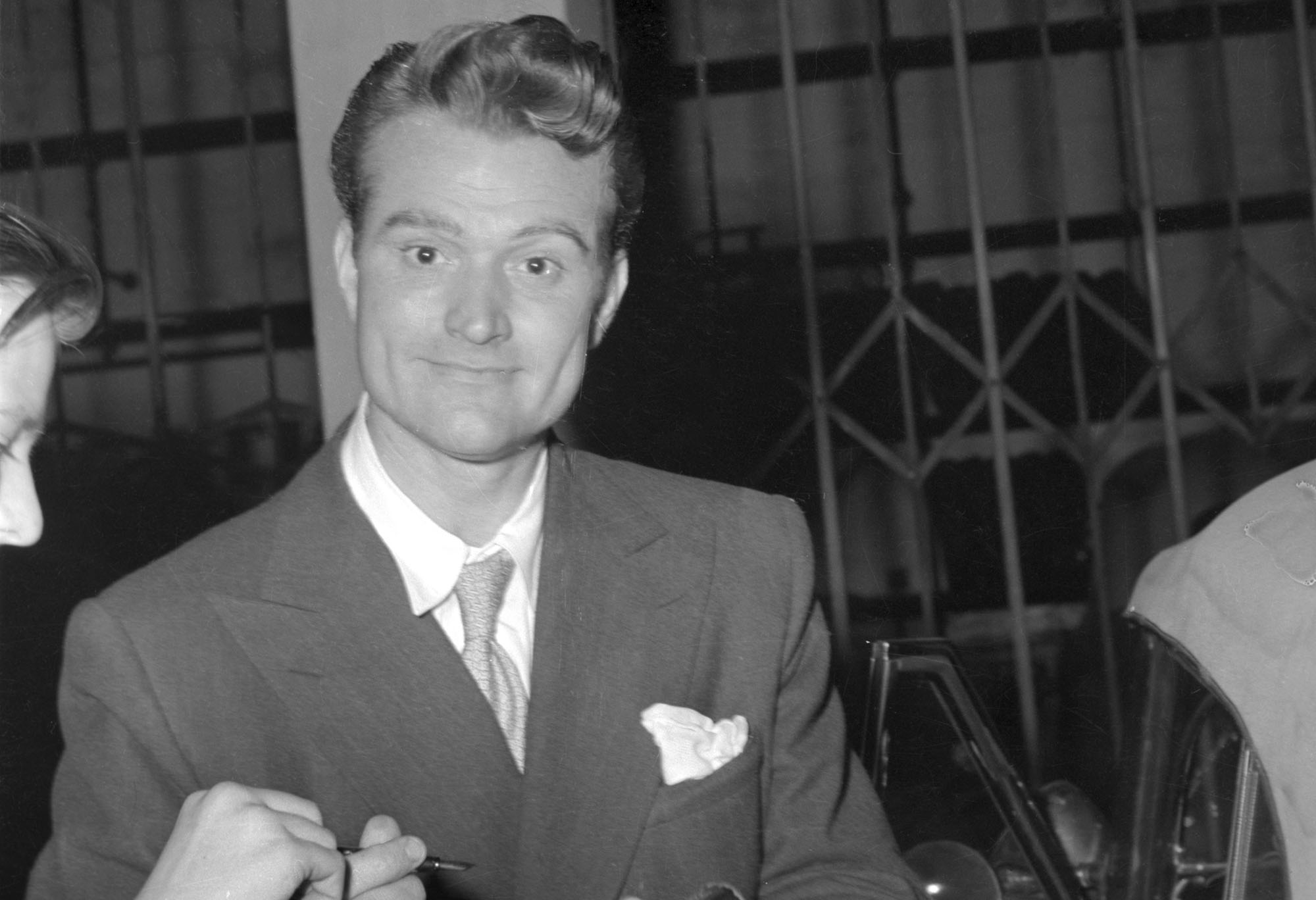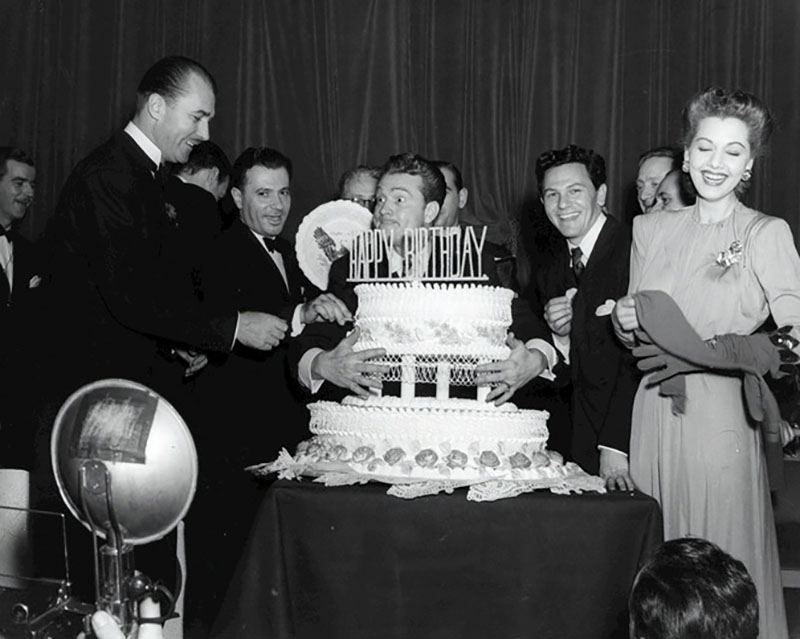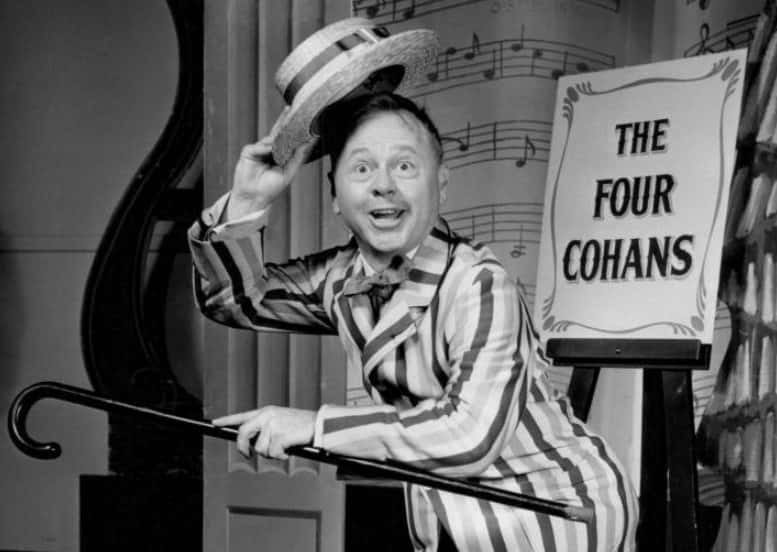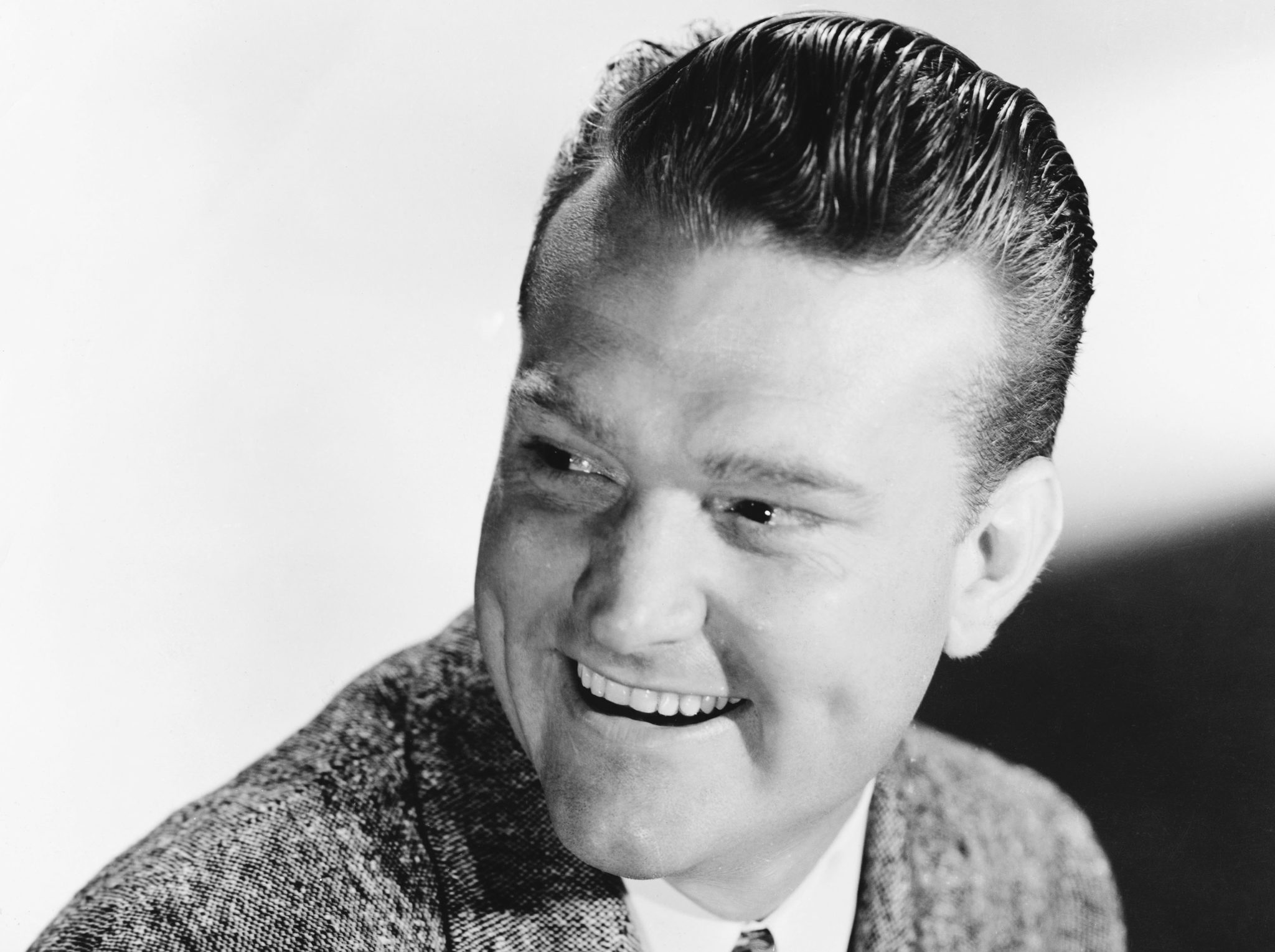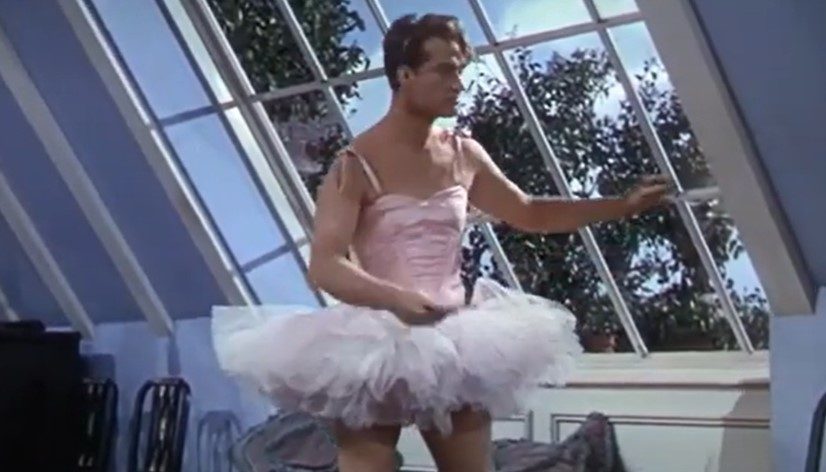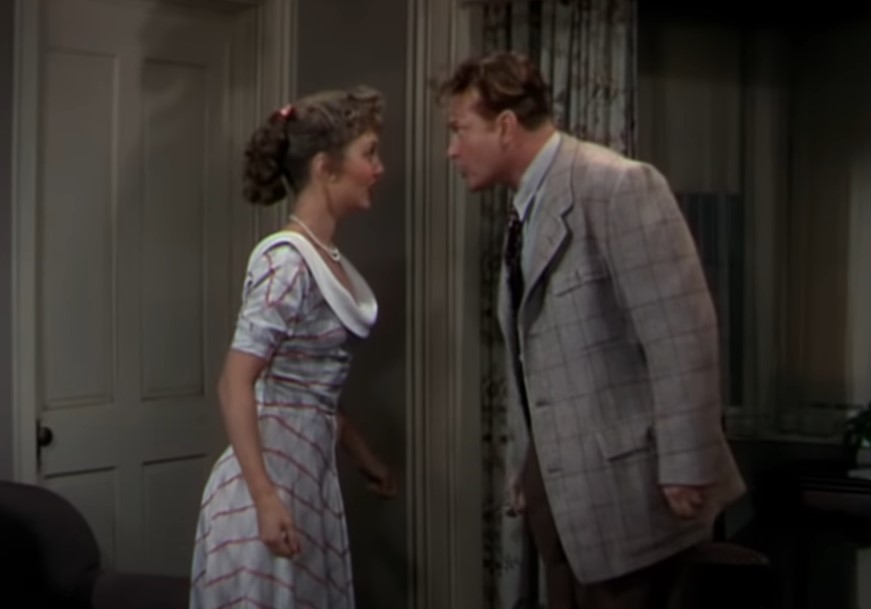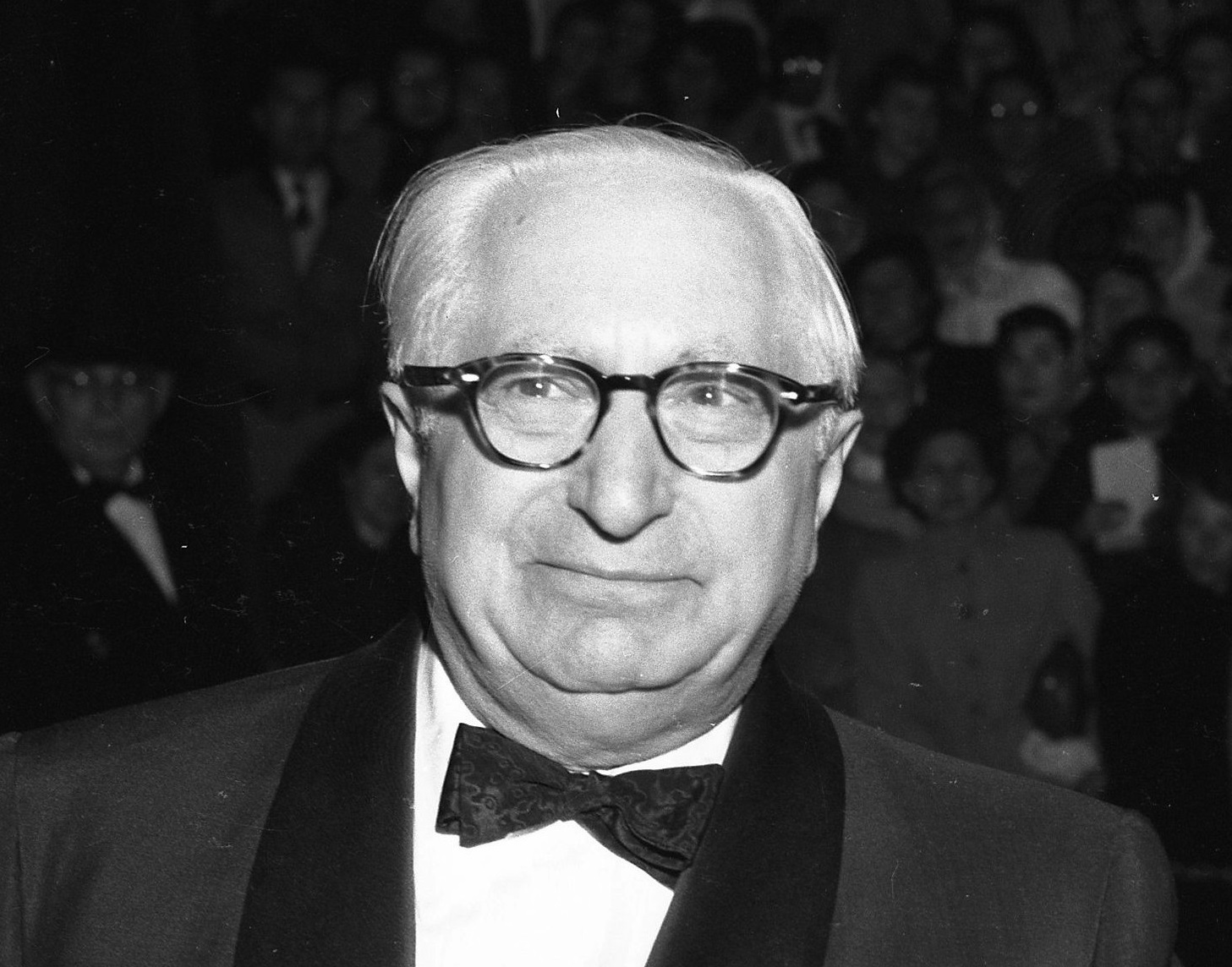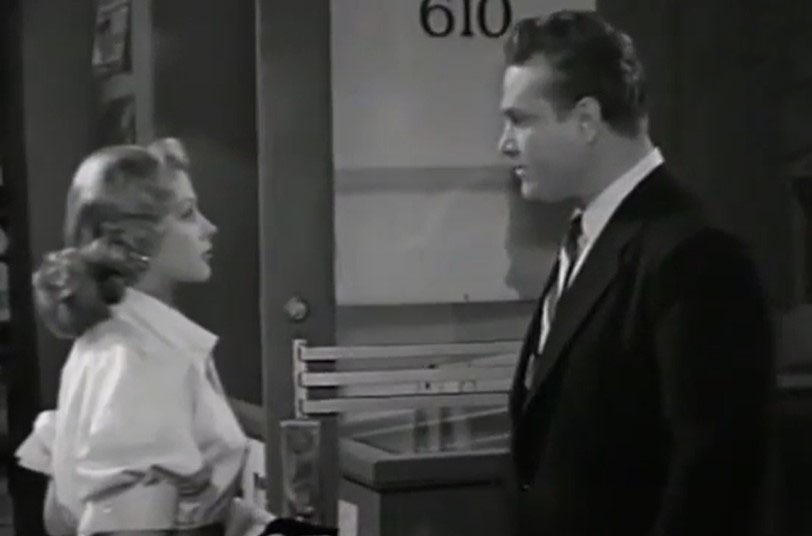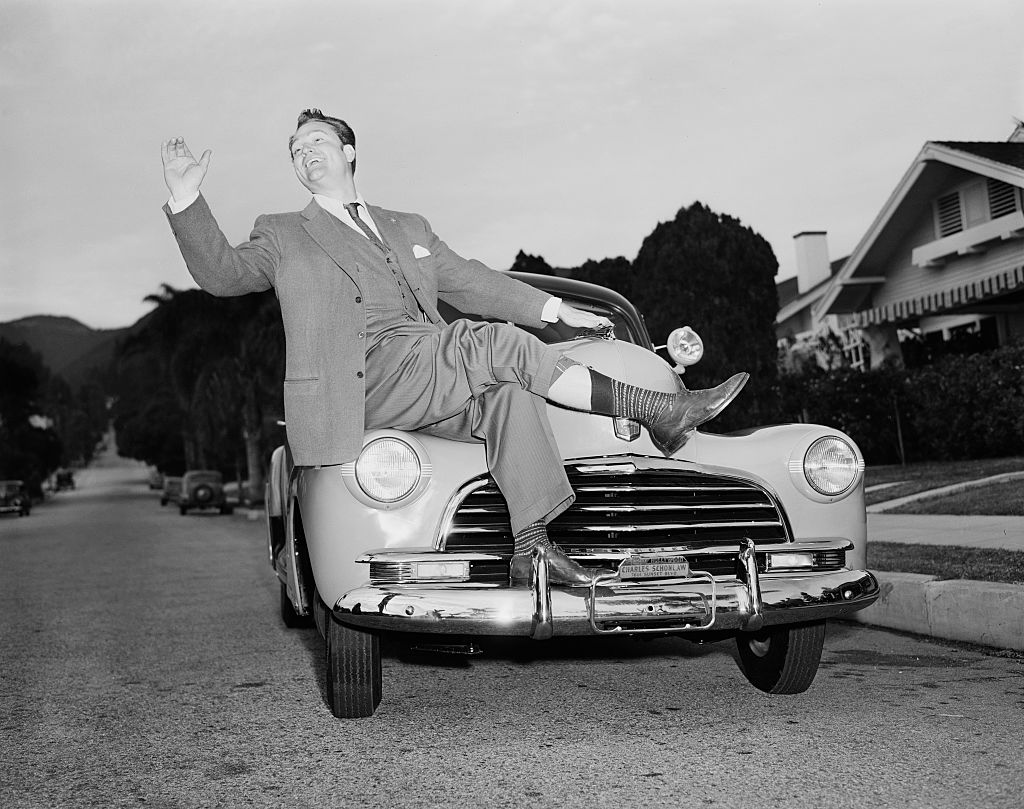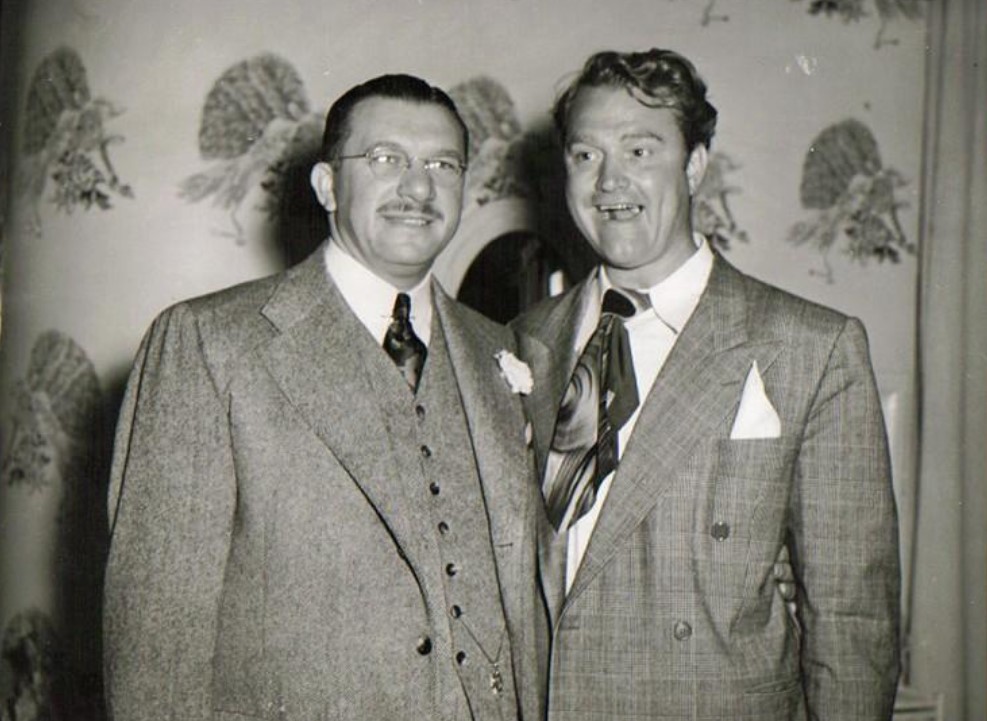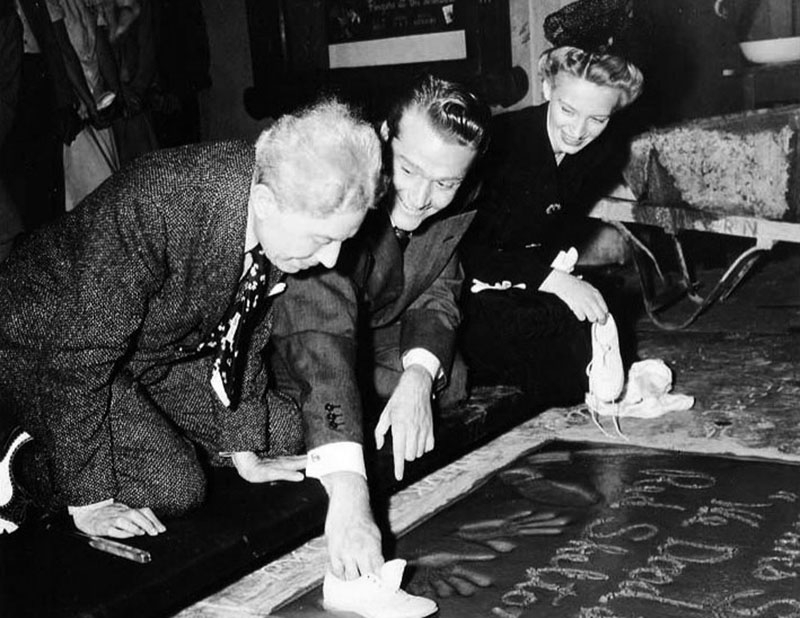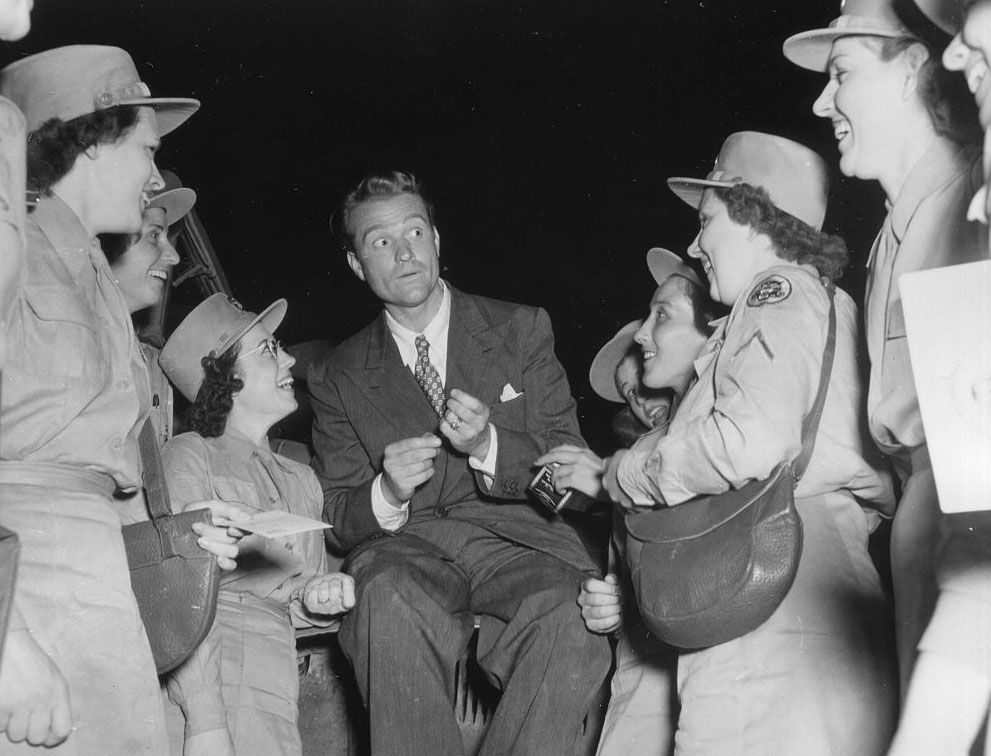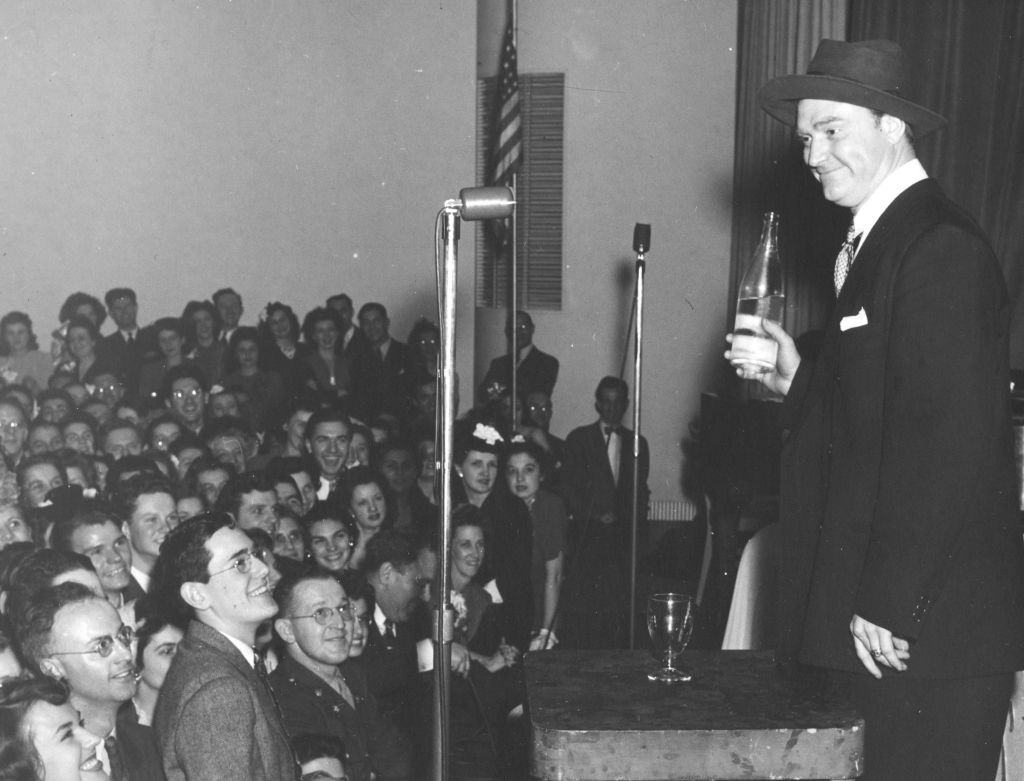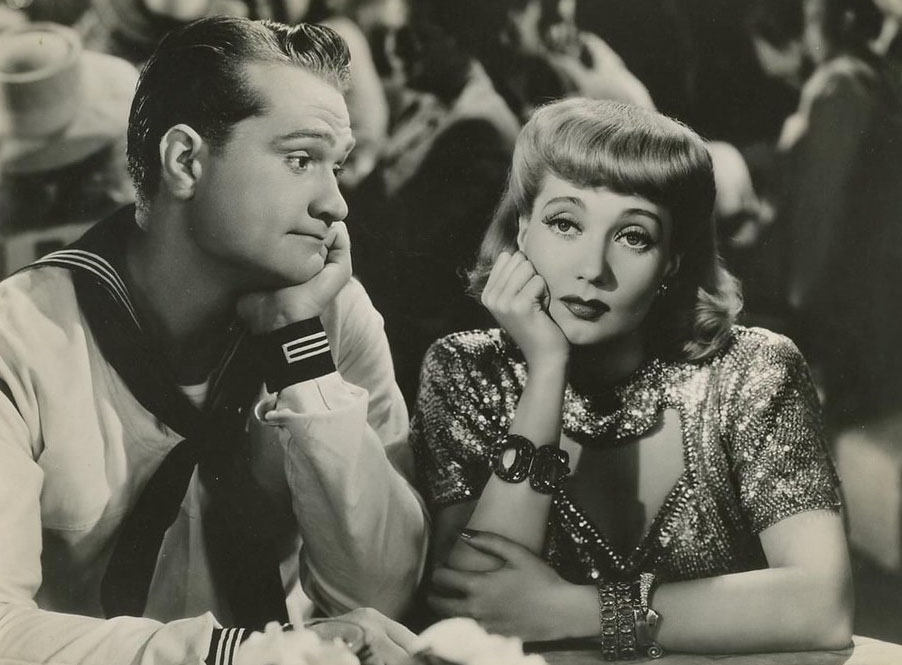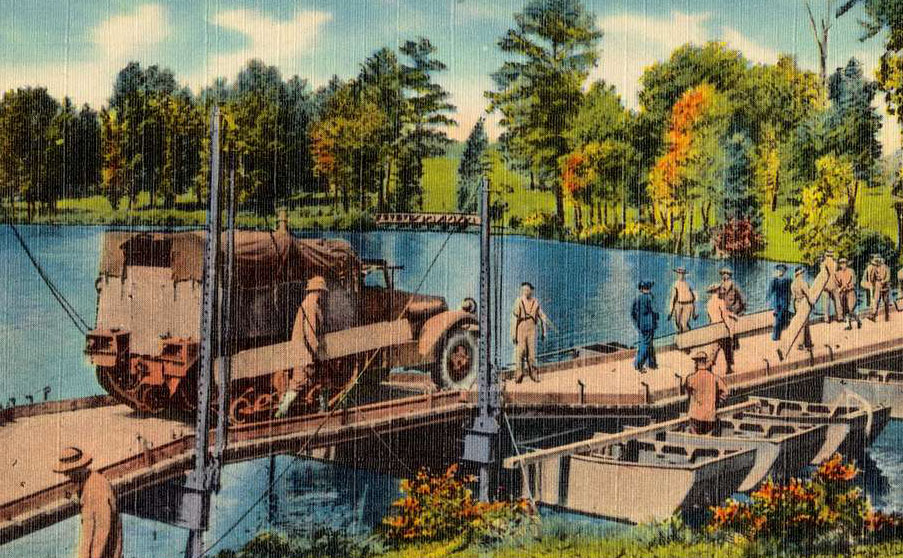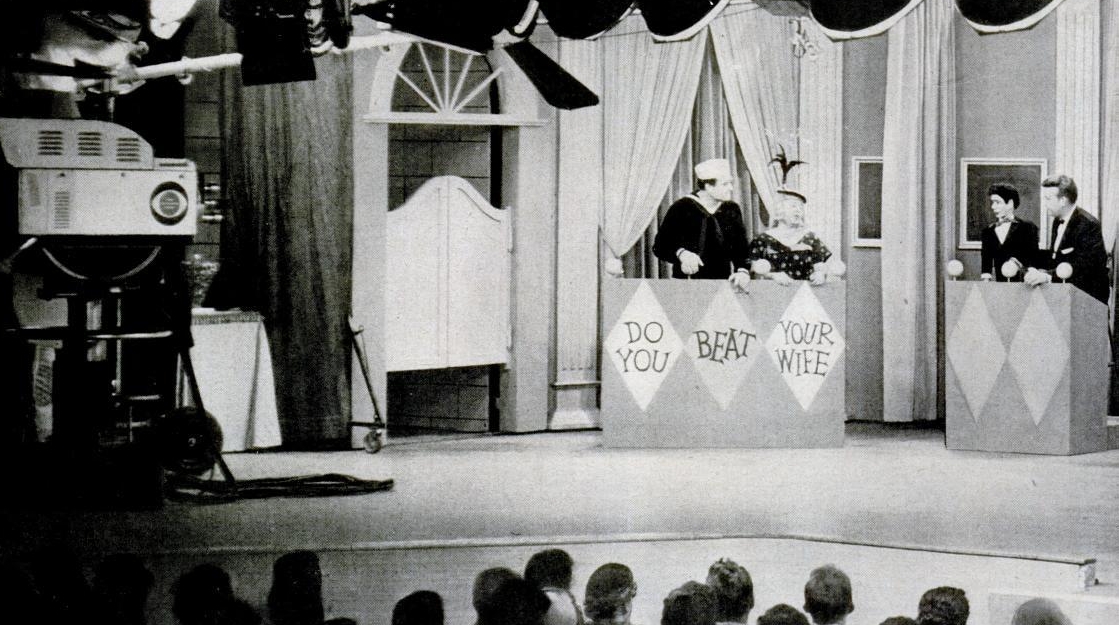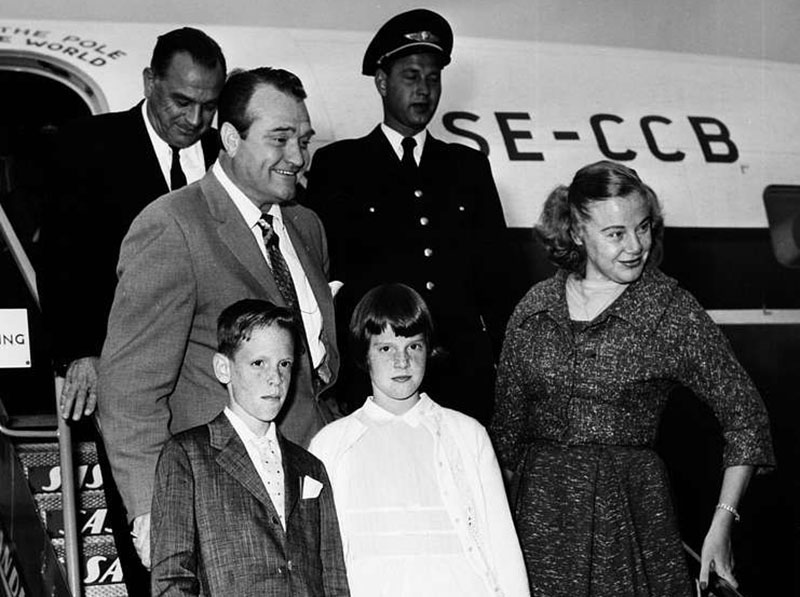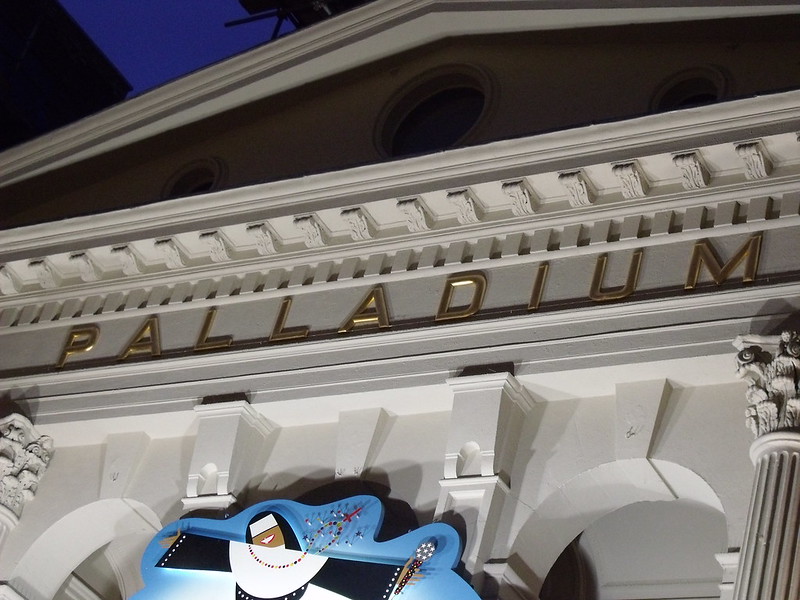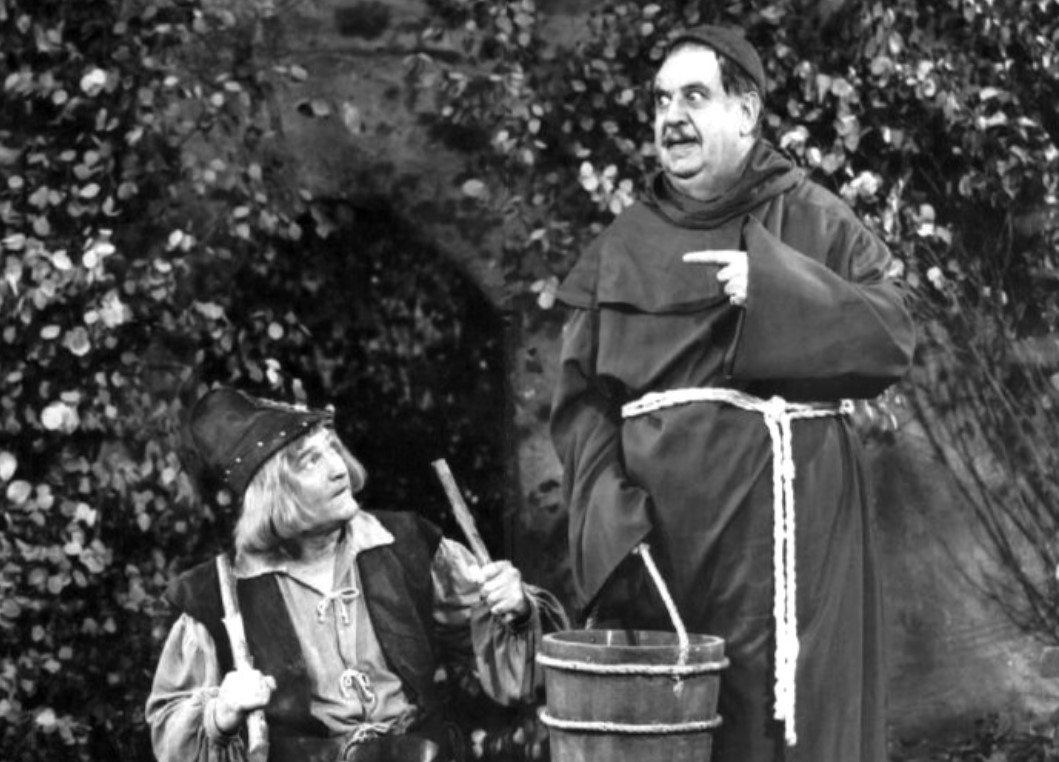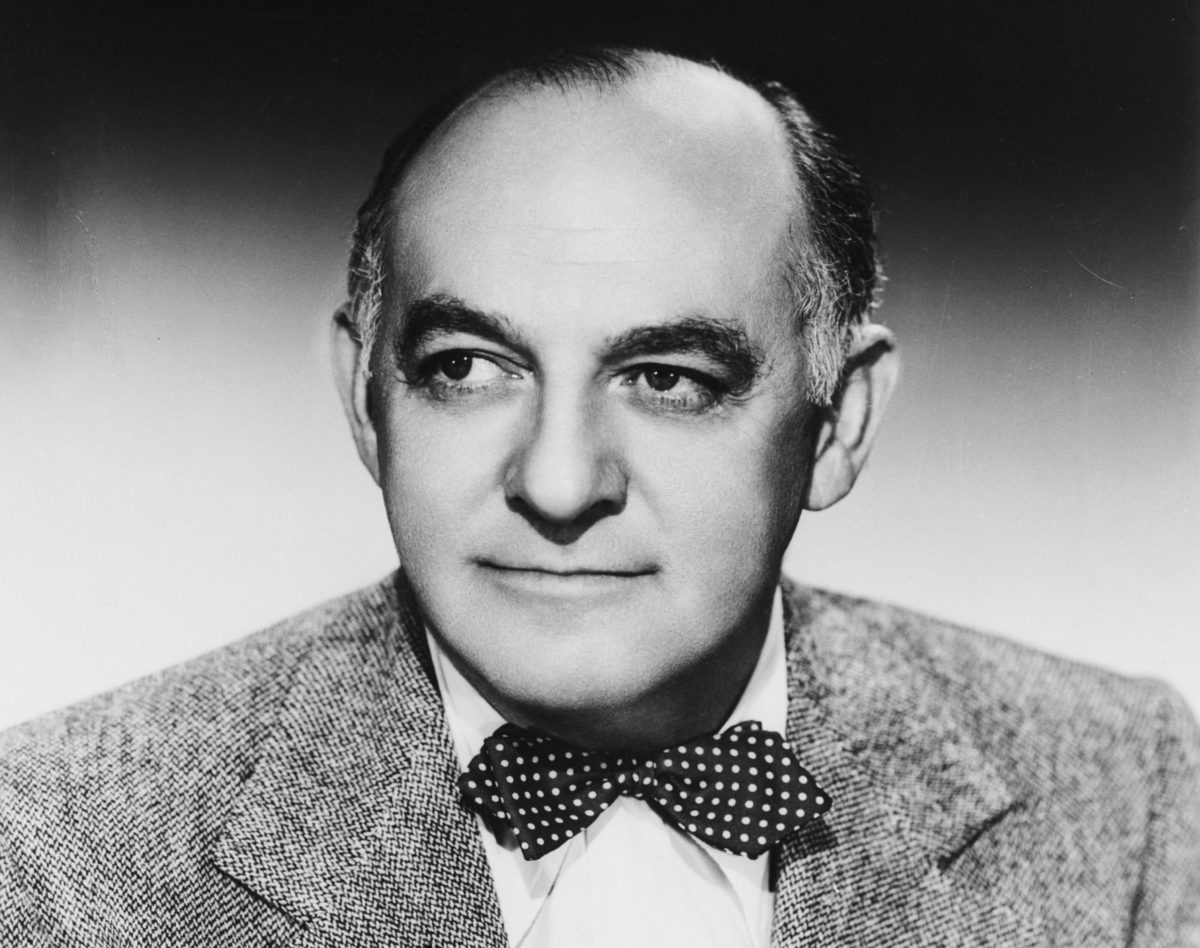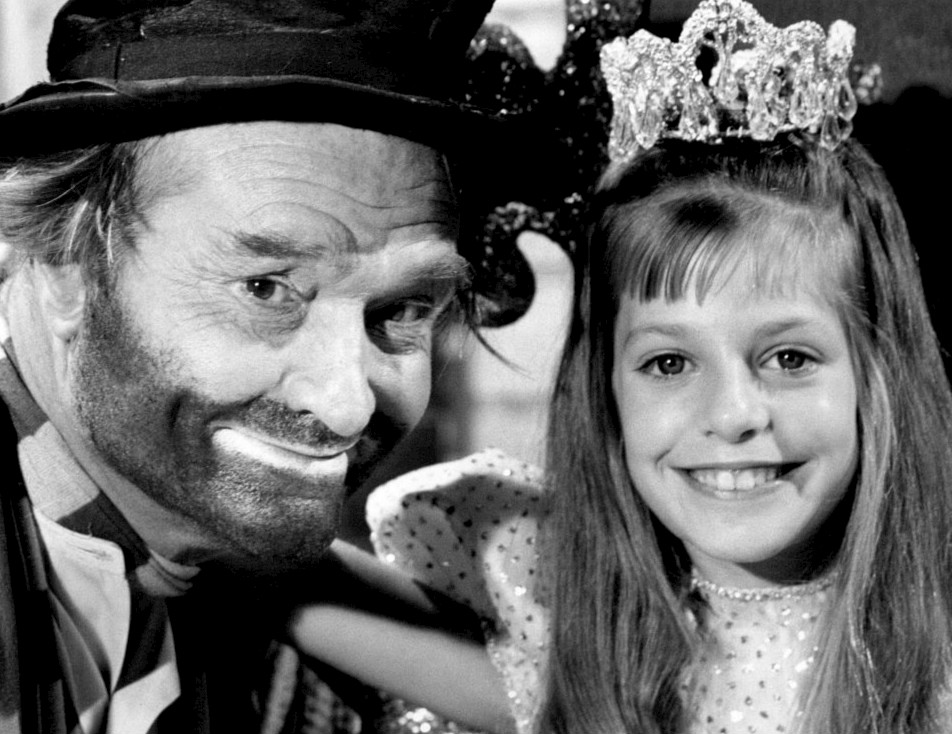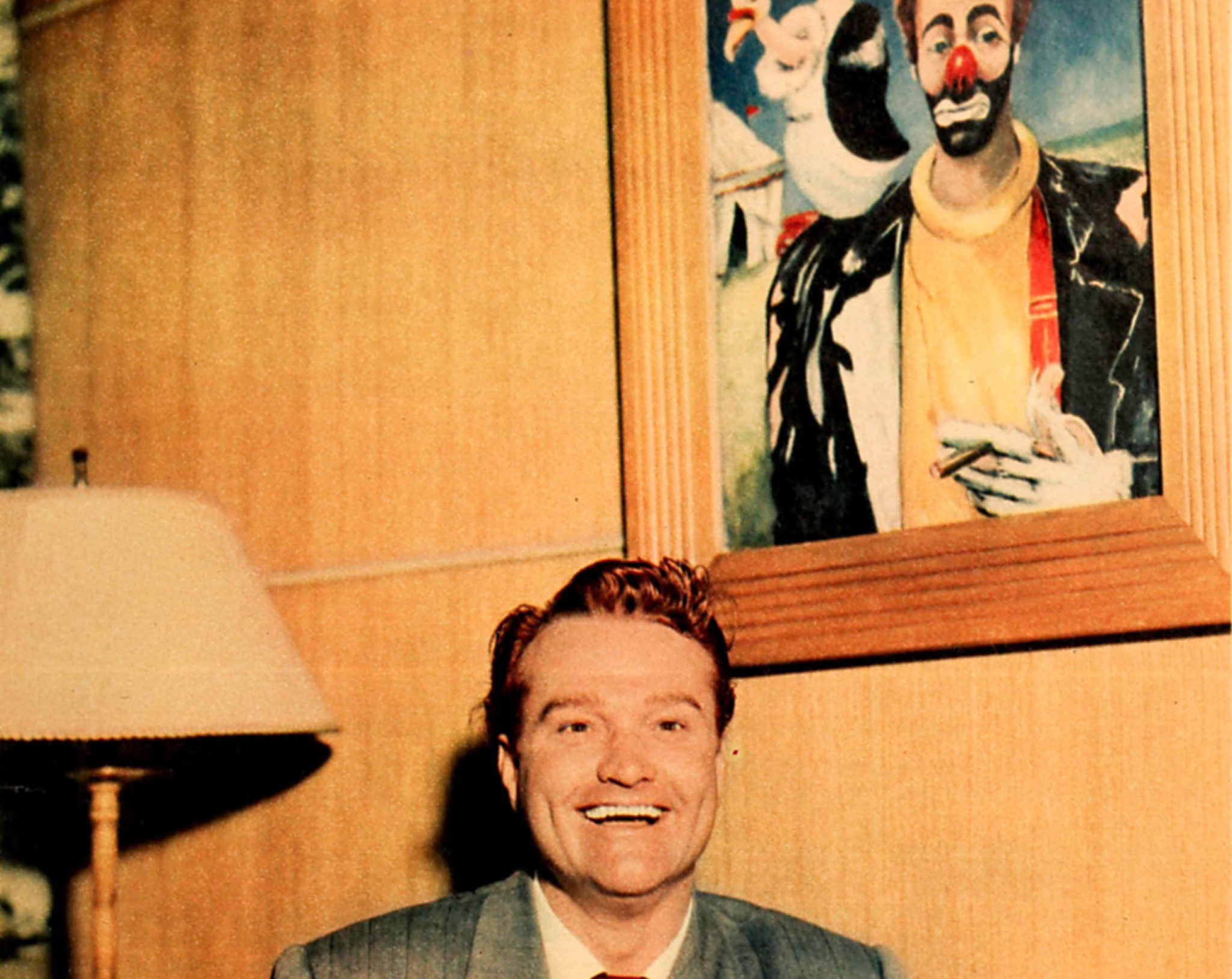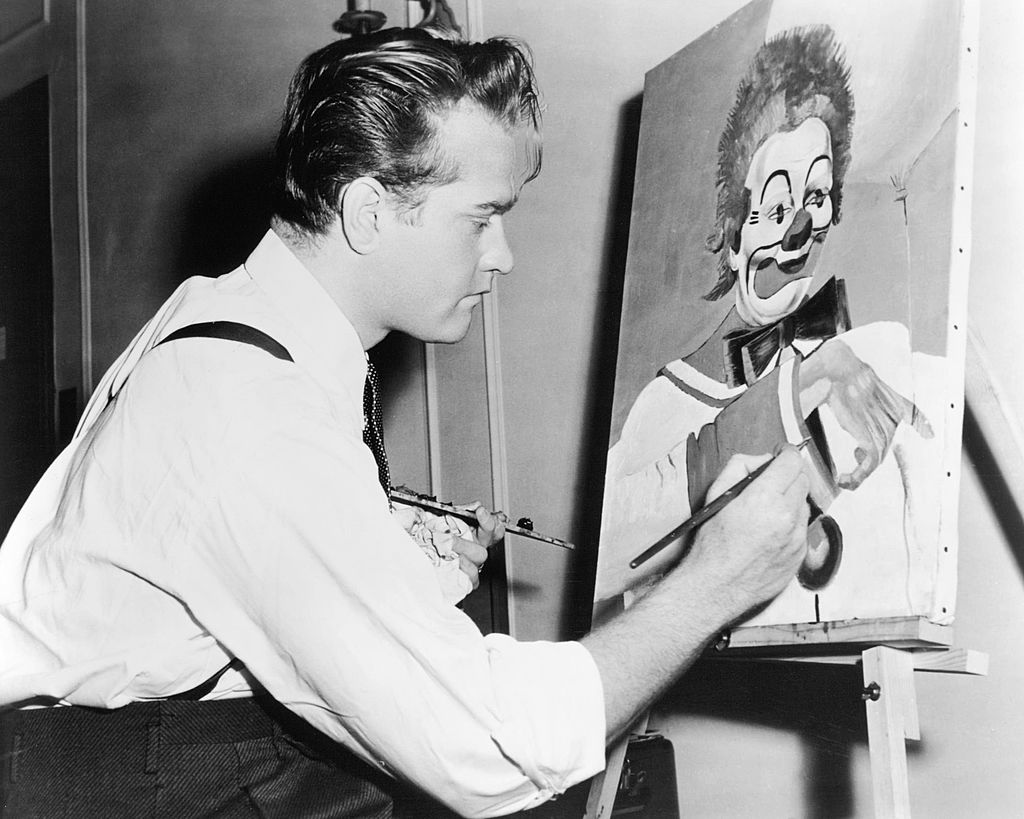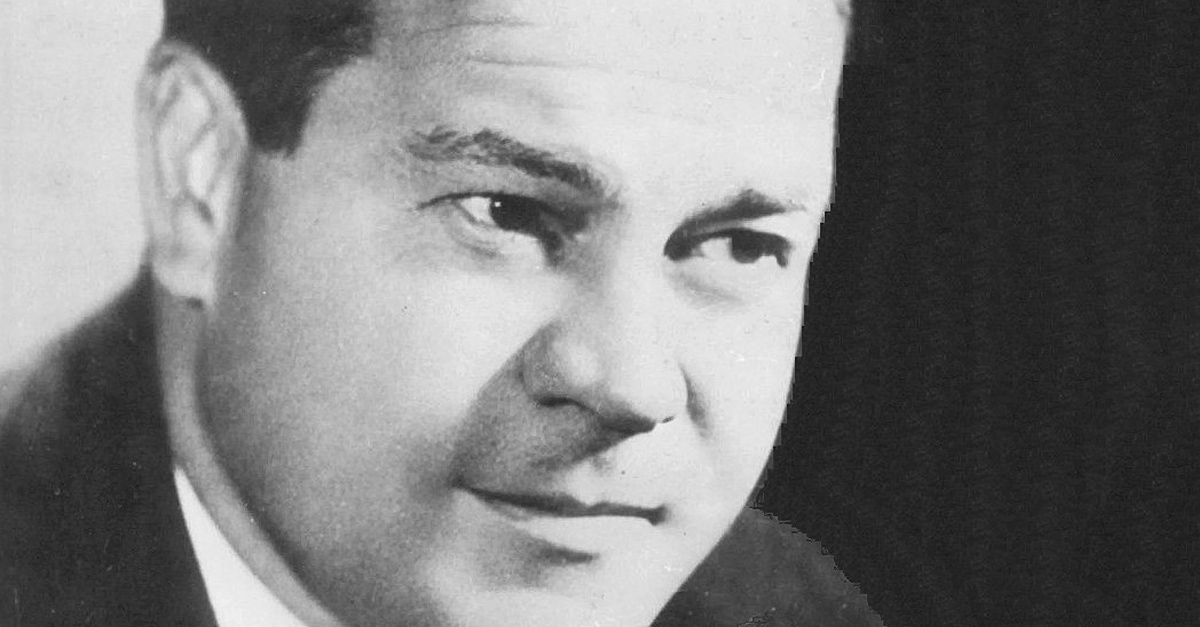Red Skelton was one of the most successful stage, radio, and television entertainers of all time. (Not to mention, a low-key Pablo Picasso).
Audiences loved him for his clean, family-friendly humor, his goofy characters, and his slapstick pantomime. But beneath all of that clown makeup was a life marred by crippling poverty, personal tragedy, and professional betrayal.
1. He Had Multiple Personalities
Richard "Red" Skelton is an odd name for a boy born in 1913 in Vincennes, Indiana. And it seems like from the very beginning, he suffered from an identity crisis. When one of his teachers called him a liar for saying that his name was "Red," he made up the name Bernard instead. It would go on to be one of his many alter egos and pseudonyms.
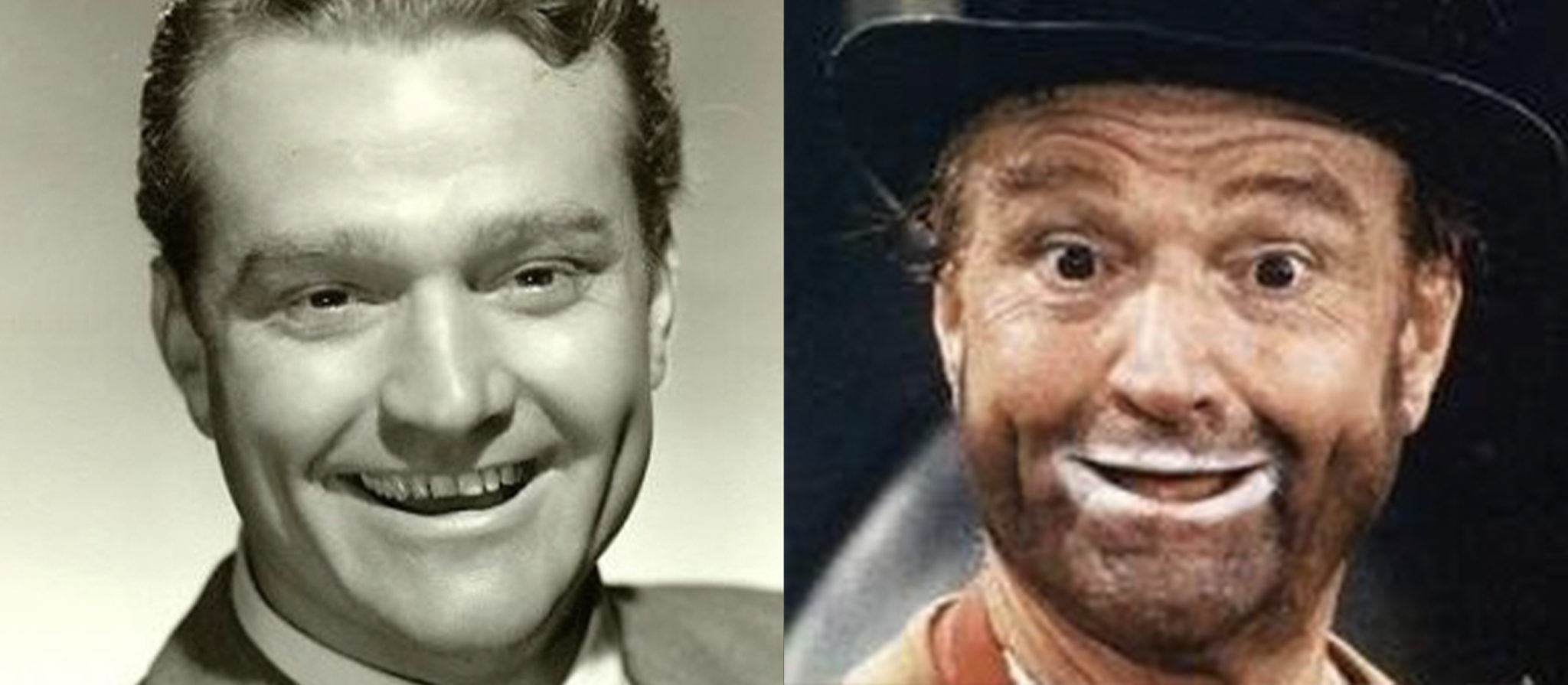
2. His Father Brought The House Down
Skelton’s father, much like the famous entertainer himself, worked as a clown. But the elder Skelton passed before Red was even born. You might say that his father brought the house down. The big tent at the circus where he worked fell on him, ending his career—and his life. What's more? There was nothing funny about Red’s childhood.
3. He Was Poorer Than Dirt
After his father’s untimely "Exit: Stage Right," the Skelton family fell into crippling poverty. They were so poor growing up that even their neighbors didn’t want anything to do with them.
When a young Red Skelton tried to spark up a romance with one of his neighbors, the girl’s parents broke it off, believing that he would be poor forever. But Skelton proved them so wrong.
4. He Was Very Annoying
To help the family pay their bills, Skelton likely lied about his age to get a job as a newspaper boy. There wasn’t much money in it but the intrepid funny kid got good at pestering people until they purchased a paper just to get him to finally shut up. Funny enough, this small gig gave him the big break that he needed.
5. He Was A Tour Guide
One day, when Skelton was selling his papers, a man passed by and asked him, "What do they do in this town for excitement?" Helpful as always, Skelton pointed across the street to the marquee on a theater and said, "There’s a big New York road show in town tonight, with a comedian, Ed Wynn". It was the chance encounter of a lifetime.
6. He Was The Butt Of The Joke
Even from a young age, Skelton always knew that he wanted to be an entertainer, just like his father—minus the collapsing big tent, of course. He continued telling the friendly stranger, "That’s what I’m going to do when I get older. I’m going to make people laugh". At the time, Skelton had no idea that the joke was on him.
7. He Was Always Sold Out
The friendly stranger asked Skelton if he was going to attend the road show. Embarrassed, Skelton had to tell him that he wouldn’t be going. "No," the little red-headed kid lamented, "I don’t have that kind of money". In response, the stranger did the unthinkable.
He proceeded to pull out a dollar and buy the rest of Skelton’s papers along with a balcony seat for the road show.
8. He Was The Guest Of Honor
Flush with cash—a whole dollar—Skelton rushed home and gave the money to his mother. Frugal as always, she gave him back a dime so that he could buy goodies at the show. When Skelton arrived at the theater and took his seat, however, he was in for a big surprise. The kid had no way of knowing that he was the guest of honor.
9. He Fell In Love At First Sight
The friendly stranger who had purchased Skelton’s newspapers emerged from behind the red curtains. It was Ed Wynn, himself! "That’s my friend down there, he got me my seat!" Skelton shouted.
During the intermission, Wynn took Skelton backstage to see the audience. "I fell in love with them then," he would later recount.

History's most fascinating stories and darkest secrets, delivered to your inbox daily.
10. He Was Invariably Funny
Inspired by this magical experience, Skelton dropped out of school to pursue a career in entertainment. At first, he was happy just to be on stage in any capacity so he tried taking on some dramatic roles with the John Lawrence theater company.
Much to his amusement, however, the audience only laughed whenever he delivered his lines.
11. He Was Headed Straight For Heaven
Even though he was a natural entertainer, Skelton’s early days on stage were full of mishaps. During a performance of Uncle Tom’s Cabin, a hidden treadmill that he was on malfunctioned and started going backward.
Skelton couldn’t contain his inner clown and broke character, shouting, "Help! I’m backing into Heaven!" sending the audience into uproarious laughter.
12. He Gave It All Away
Skelton got a job with a traveling medicine show, thrilling audiences with his physical comedy. Even as a teenager, he was making ten dollars a week, sending all of the money back to his struggling family. When his mother expressed concern that he wasn’t keeping any money for himself, he wrote back, "We get plenty to eat, and we sleep in the wagon".
But vaudeville couldn't hold his attention forever.
13. He Wasn’t That Funny
Skelton left vaudeville entertainment after it became too…risqué for his liking. For a while, he found his place working as an emcee for dance contests. But it was a tougher crowd than he was accustomed to. One of the winners, a young lady by the name of Edna Stillwell, told him after the show that she didn’t care for his jokes.
14. He Was Just The Face
Never one to miss a beat, Skelton asked Stillwell if she thought that she could do any better. Turns out that she could. Less than a year later, Skelton and Stillwell got married and she began writing his jokes for him. But that’s not all that Stillwell did for him. She was definitely the strong woman behind the…pantomime man?
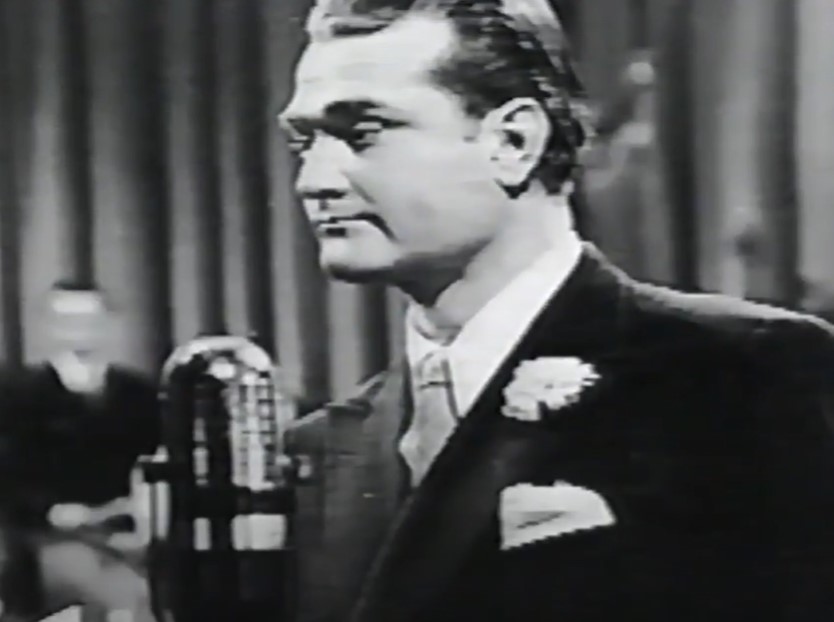 Red Skelton: A Career of Laughter (1992), Movietime
Red Skelton: A Career of Laughter (1992), Movietime
15. His Wife Managed His Career
In addition to making Skelton funnier, Stillwell also made him smarter. And richer. Seeing as though Skelton had dropped out of school, Stillwell stepped in as his teacher and taught him all about trigonometry and Medieval history. And when Skelton’s boss tried to cut his salary, he met the very unfunny side of Stillwell.
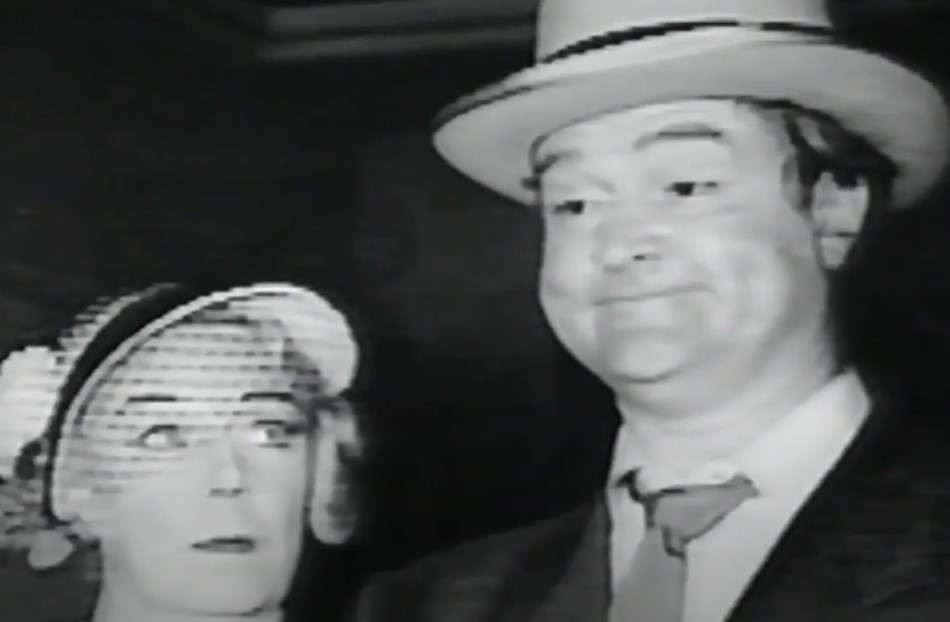 Red Skelton: A Career of Laughter (1992), Movietime
Red Skelton: A Career of Laughter (1992), Movietime
16. His Wife Brought Home The Bacon
After learning that Skelton’s boss was going to cut his salary, Stillwell marched into his office. It’s not at all clear what she said to the man but when she came out, not only had she managed to prevent the pay cut, but she also secured a massive pay increase for Skelton. She'd also wrangled a whole host of other perks and concessions.
But Skelton wasn’t totally useless on his own.
17. He Was A Traveling Salesman
When Skelton and Stillwell ran out of money trying to cross the country, Skelton came up with an ingenious way to make quick money. He told Stillwell to start collecting empty cig cartons.
He then spent their last fifty cents on bars of soap, cut them up, and wrapped them in the foil from the cig cartons, selling them as eyeglass fog remover.
18. He Loved Doughnuts And Coffee
Skelton’s second big break came in a Montreal diner of all places. While eating there with Stillwell, Skelton came up with an act making fun of the way that people dunk their doughnuts in their coffee. The relatability of the act made it an instant hit with audiences. In fact, it was so good that it even attracted the attention of a very important person.
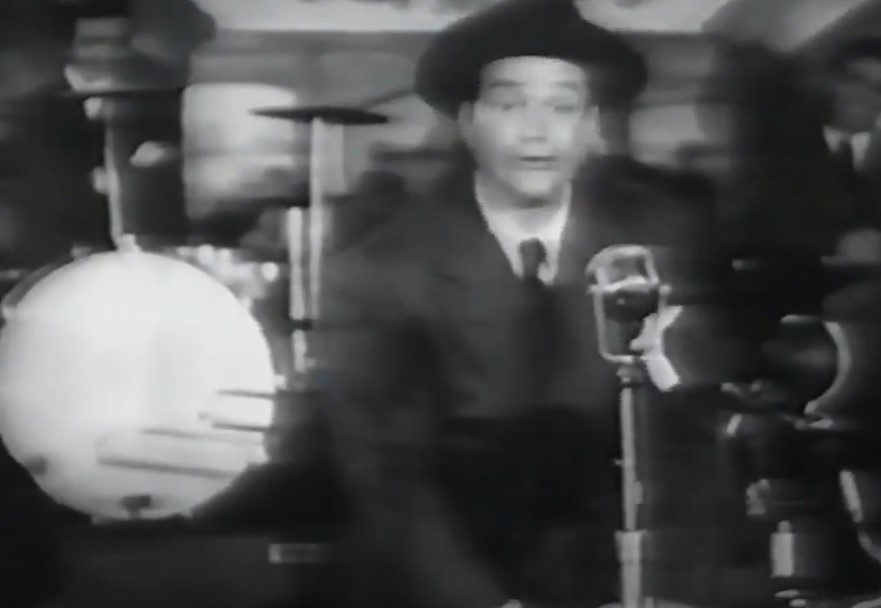 Red Skelton: A Career of Laughter (1992), Movietime
Red Skelton: A Career of Laughter (1992), Movietime
19. He Was Presidential
In 1937, President Franklin D Roosevelt was so impressed with Skelton’s "Doughnut Dunkers" act that he invited him to host his birthday luncheon at the White House. During one of the toasts, Skelton took hold of Roosevelt’s glass and joked, "Careful what you drink, Mr President. I got rolled in a place like this once".
But the comic's sudden spark of success didn't end there. In fact, this was only the beginning.
20. He Went to Hollywood
Skelton’s performance at the White House turned into an overnight success. The entire east coast entertainment scene couldn’t get enough of Skelton’s clean, physical humor. And before long, Hollywood came knocking.
Famed funnyman Mickey Rooney contacted Skelton and encouraged him to make the move across the country to the City of Angels.
21. He Didn’t Care For The Movies
Skelton had tried and failed to break into Hollywood a few times before but with no success. It wasn’t until he performed his "Doughnut Dunkers" act with a few improvisations for a screen test that Metro-Goldwyn-Mayer took note. But he soon discovered that the movie business wasn’t all it was cracked up to be. At least, not for clowns.
22. He Made A Beautiful Ballerina
MGM locked Skelton into a film contract that severely limited his ability to appear on stage or on the radio. And it’s not like they had him starring in glamorous roles. For 1944’s Bathing Beauty, for example, he appeared in a tutu. While he didn’t mind that as a gag, he complained about having to shave his chest, back, and underarms.
23. He Was A Prankster
Instead of getting mad at the studios for restricting his true love for the stage, Skelton found a funny way to get even.
While filming 1949’s Neptune’s Daughter, MGM had a special piano built just for one scene. When the big day came to film the scene with the piano, it mysteriously disappeared. But then Skelton came to the rescue.
24. He Was A Pianist
Skelton informed MGM head, Louis B Mayer, that he just so happened to have a piano exactly like the specially built one at his apartment. Needless to say, Mayer didn’t believe Skelton until he drove the studio boss to his apartment and showed him. Amazed, Mayer offered Skelton $50/day to use the piano so they could resume filming. Oh, but that wasn't all.
25. He Laughed His Way To The Bank
Skelton held out, knowing that the massive studio could afford to pay a lot more than $50/day. Eventually, Mayer relented and agreed to pay Skelton $1,000/day to use the piano. Apparently, it never occurred to Mayer that Skelton had, in fact, boosted the original piano from the set with the help of some studio hands.
26. He Had Three Trailers
Skelton didn’t necessarily enjoy his years making movies. But that’s not to say that the studios treated him poorly. In fact, he was something of a big deal on set.
While filming 1950’s Watch the Birdie, Skelton played three roles. Accordingly, MGM gave him three separate trailers—one for each character. They never did get back that piano though.
27. He Went Off Script
Even when he was on a film set, Skelton considered himself to be an entertainer first and an actor second. His preference to ad-lib his lines and improvise his scenes drove some directors crazy. Director Jack Dohanue, for example, exclaimed, "God help us all. If he manages to say it in English, write it down and we'll use it".
Skelton seemed to be improvising his way through life, but it was all about to take a very unfortunate turn.
28. He Was In The Dark
Eventually, Skelton managed to wriggle his way out of his contract with MGM but it wasn’t the only contract of his coming to an end. Shortly after leaving MGM, Stillwell told Skelton that, after 12 years of marriage, she was going to divorce him. At first, Skelton didn’t believe her, that is, until he heard the news of his impending divorce on NBC.
29. His Ex Still Ran His Life
Both Skelton and Stillwell remained tight-lipped about the reason for the divorce. Despite the rumors, however, it appeared to be an amicable breakup. Stillwell continued to work as Skelton’s manager and gag writer, confessing to the papers, "I feel that it is more important to carry on for Red as his manager than to try to make a success of both jobs".
30. He Rushed Into Another Woman’s Arms
Skelton didn’t waste much time moving on Stillwell. Less than a year later, he announced that he was engaged to a woman named Muriel Morris. In fact, Skelton claimed that he and Morris had obtained a marriage license and were intending to marry within a few days. If it seemed like there was an emergency, that’s because there was.
31. He Was In The Service
As a recently single man, Skelton found himself drafted into service in the final years of WWII. While his status as an entertainer kept him far from the front lines, he was still subjected to grueling conditions. Skelton performed as many as 12 shows a day, eventually causing him to have a nervous breakdown in 1945. But his comedy saved lives.
32. His Engagement Was A Ruse
Just before Skelton could marry Morris, she backed out of the deal. At first, she claimed that she had ended her engagement with Skelton so that she could marry a wealthy businessman in Mexico City. However, she later backtracked, claiming that there was no other man. All the same, Skelton had to pack his bags to join the US Army.
33. He Was A Favorite With Troops
As a celebrity and traveling entertainer with the US Army, Skelton was an immediate hit with the troops. Of course, he wasn’t the only one allowed to crack jokes. When he arrived at Camp Roberts in California, his fellow servicemen put up a sign on his barracks door that read, "Tour a Movie Star's Home — Twenty-Five Cents".
But the laughs didn’t come for free.
34. He Had A Severe Stutter
Skelton’s nervous breakdown left him with a severe stutter and it seemed like his days of performing on stage had come to an end. But other servicemen had far more grievous injuries. While recovering, Skelton met another private whom the doctors did not expect to survive his wounds.
Skelton decided to help him—and the consequences were jaw-dropping.
35. His Jokes Were Life-Saving
Ever the entertainer, Skelton dedicated most of his time in the hospital at Camp Pickett, Virginia to boosting the injured private’s morale. After just a few good skits, his friend’s health improved and the doctors removed him from the critical list. But that wasn't the only miracle.
Once he found his funny bone once again, Skelton's own stutter improved.
36. He Had A Heart Condition
In 1945, shortly before the end of his service, Skelton received a medical leave for an unspecific throat condition. His real motivations, however, might have had more to do with a heart condition.
During his leave, Skelton married the model Georgia Davis, saying, "The only thing that bothers me is that I might ship over before I have time to get married".
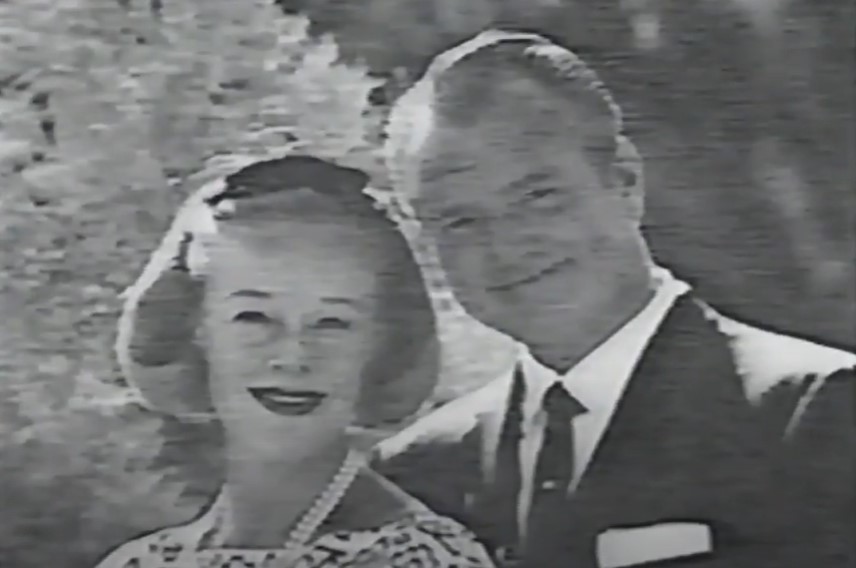 Red Skelton: A Career of Laughter (1992), Movietime
Red Skelton: A Career of Laughter (1992), Movietime
37. He Landed His Own Show
Free from his contract with MGM—and the US Army—Skelton signed a television contract with NBC to expand his popular radio shows. This was the beginning of The Red Skelton Show, which ran from 1951 to 1971.
Of course, in 20 years of entertainment television, Skelton provided the world with more than a few laugh-out-loud moments. Planned or not.
38. His Humor Wasn’t Clean
Skelton’s preference for improvisation and ad-libbing made for unforgettable television. He insisted on only ever doing one take for his show, even if things got a little…messy.
In one now infamous moment on live television, Skelton ad-libbed the line, "Not only does she give milk, but also Pet-Ritz pies!" when a cow unexpectedly pooped on stage.
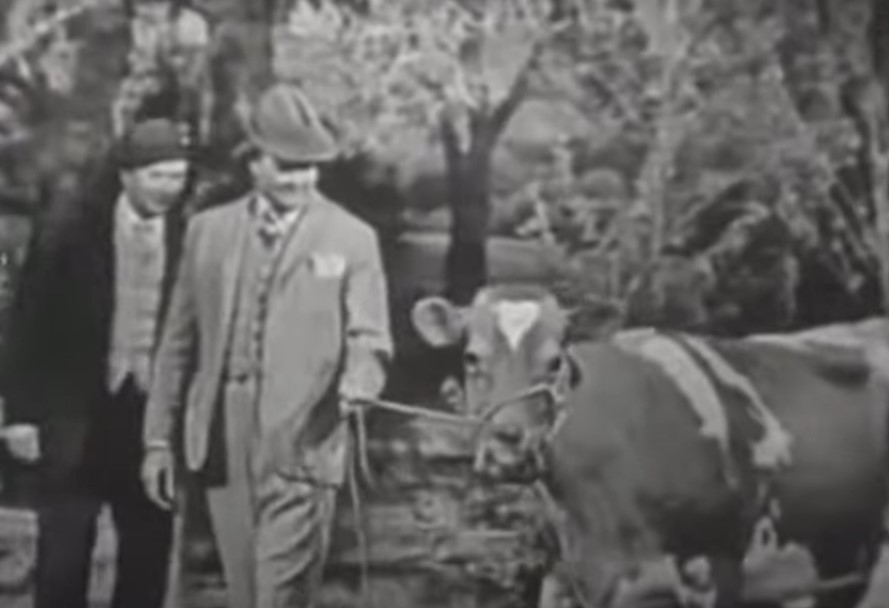 The Red Skelton Show (1951-1971), NBC
The Red Skelton Show (1951-1971), NBC
39. He Was (Temporarily) Canceled
Skelton’s fast-paced, unscripted humor made him hard to work with. For example, there was that one time when NBC censored Skelton for two whole minutes because of some sharply pointed jokes that he leveled at an "imaginary" studio executive.
Following that incident, Skelton wouldn’t have as much free reign ever again.
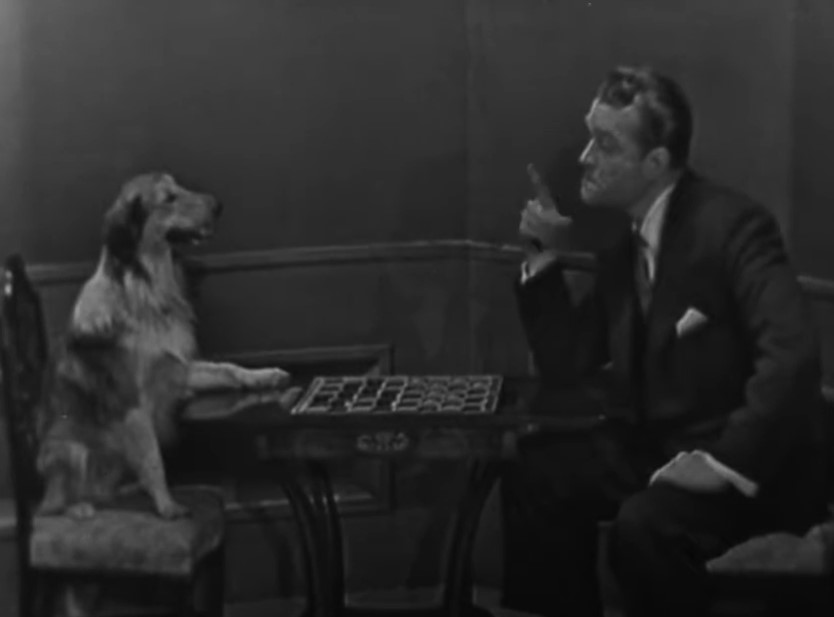 The Red Skelton Show (1951-1971), NBC
The Red Skelton Show (1951-1971), NBC
40. He Kept It Family Friendly
Even though NBC and CBS objected to some of Skelton’s humor, he was one of the cleanest comedians out there. He was notoriously averse to "blue humor" and spoke out publicly against any comedians that used innuendo to "cheapen comedy". He even made sure that no line in his show might sound too much like a double entendre.
 The Red Skelton Show (1951-1971), NBC
The Red Skelton Show (1951-1971), NBC
41. He Didn’t Write His Own Jokes
Famed comedy writer Sherwood Schwartz joined The Red Skelton Show after it moved to CBS. And Schwartz made sure to keep Skelton on his toes. He had it written into his contract that Skelton couldn’t discuss the script with him prior to taping, leading to awkward moments when Skelton would break character and say to the audience, "Don’t blame me, folks, I don’t write this stuff".
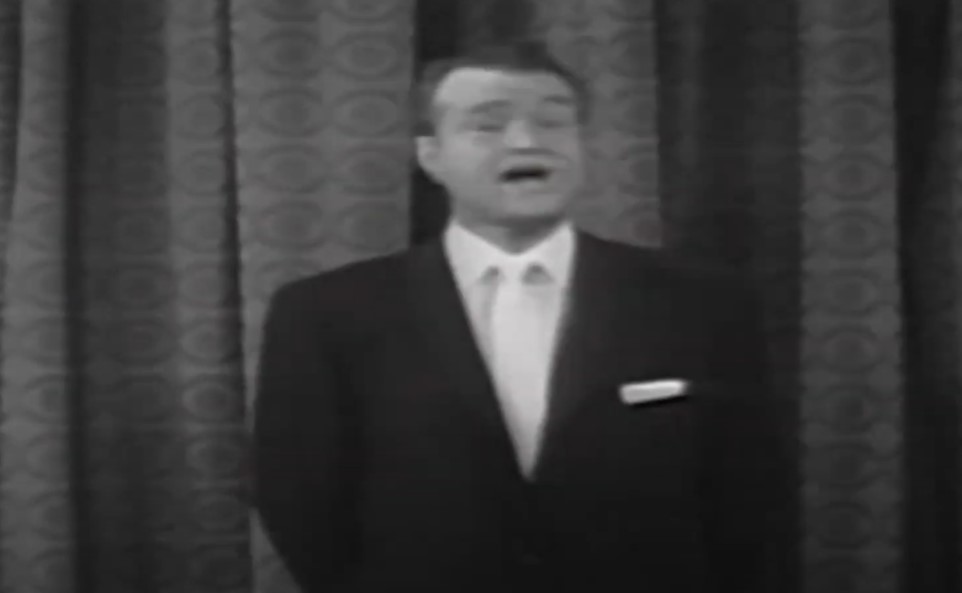 The Red Skelton Show (1951-1971), CBS
The Red Skelton Show (1951-1971), CBS
42. He Lost His Sense Of Humor
Just when it seemed like Skelton had everything, he lost the only thing that really mattered to him. He had two kids with his second wife, Georgia Davis—a daughter named Valentina and a son named Richard.
Tragically, just ten days before Richard’s tenth birthday in May 1958, he succumbed to his battle with leukemia. All of a sudden, Skelton was out of laughs.
43. He Fell From The Top
Around the same time, Skelton suffered a health scare that nearly ended his career and life prematurely. The comedian fell down a flight of stairs, injuring his ankle and suffering a "cardiac-asthma" attack.
Paramedics rushed him to St John's Hospital in Santa Monica, where his doctors said, "if there were ten steps to death, Red Skelton had taken nine of them by the time he had arrived".
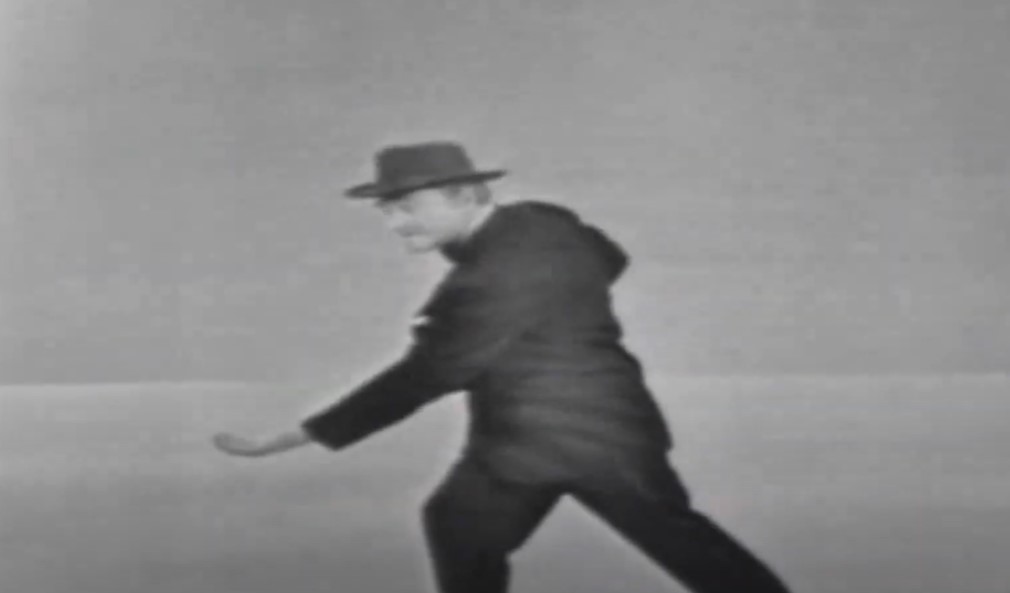 The Red Skelton Show (1951-1971), CBS
The Red Skelton Show (1951-1971), CBS
44. He Turned To The Bottle
According to some sources, Skelton never touched a drop of hooch. Other sources, however, say that he leaned heavily into drinking given his intense work schedule and the marital problems that he encountered following his son’s passing. In all likelihood, the aggrieved comedian buried his sorrows in his artwork.
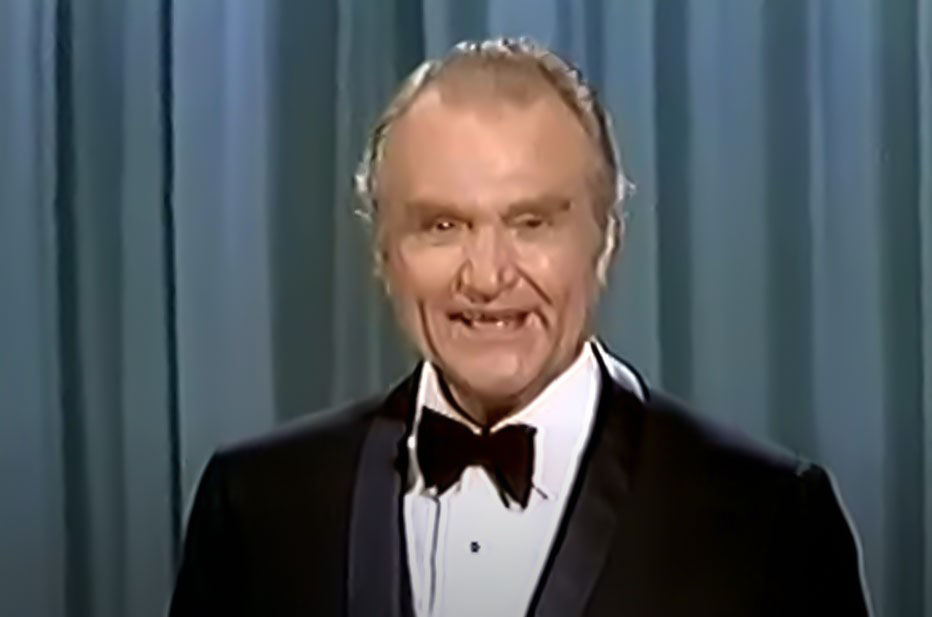 The Red Skelton Show (1951-1971), CBS
The Red Skelton Show (1951-1971), CBS
45. He Lost His Show
After decades on the air, and despite still pulling in record viewing numbers, CBS canceled The Red Skelton Show. While Skelton bowed out gracefully, behind the scenes he held a grudge against the studio executives that he felt had stabbed him in the back. But it wasn’t the first time that Skelton had been taken "off the air".
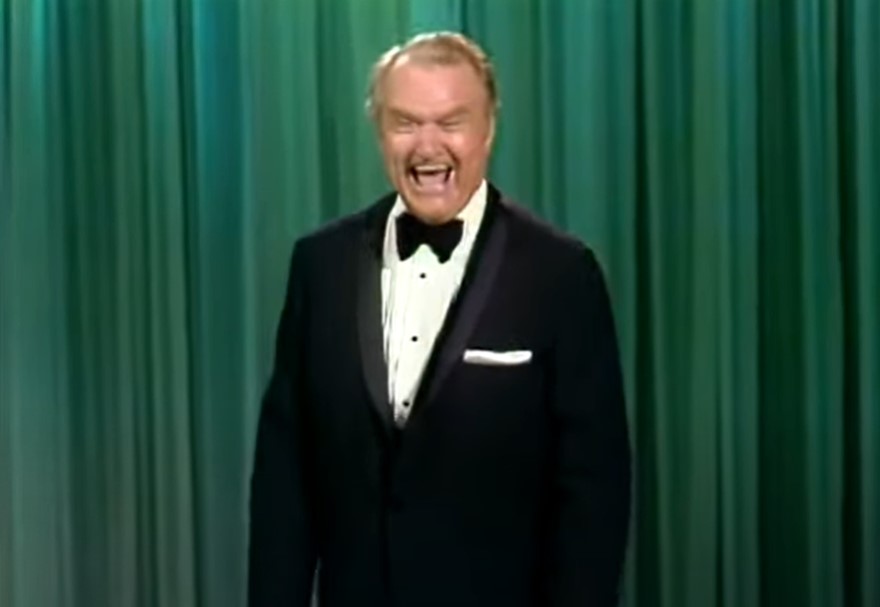 The Red Skelton Show (1951-1971), CBS
The Red Skelton Show (1951-1971), CBS
46. He Was Flying Low
In July 1951, Skelton boarded a plane from Rome to attend a four-week engagement at the London Palladium. While they were in mid-flight, two of the plane’s four engines gave out. Under more strain, it seemed likely that the other two engines would also give out, sending the plane and its passengers on a crash course toward the face of Mont Blanc.
47. He Was Funny To The End
Assured that they were all about to meet a fiery end, a priest onboard the plane readied himself to administer the last rites. And he encouraged Skelton to do the same, saying, "You take care of your department, Red, and I'll take care of mine".
Skelton managed to entertain the passengers with pantomimes while, miraculously, the plane made a safe landing at a small airstrip in Lyon, France.
48. He Had A Morbid Sense of Humor
Even in the face of tragedy, Skelton never let a good joke go to waste. At the funeral of the much-hated studio chief Harry Cohn, Skelton delivered a classic one-liner that had everyone in tears from laughing so hard.
"Old Harry was right after all," Skelton quipped at the somber affair, "you give the public what they want and they'll always show up!"
49. He Kept Himself Humble
Skelton lived for the thrill of performing. At the end of every performance, when the audience had gone home, he would return to the empty stage and stand in silence. All by himself, he would repeat the unsettling line, "Tomorrow I must start again. One hour ago, I was a big man. I was important out there. Now it's empty. It's all gone".
50. He Was A True Artist
Audiences knew Skelton as the red-headed comedian and the funny clown—but, deep down, he was truly an artist. A prolific artist. At one point in time, his art dealer said they believed that he made more money from selling artwork than he did from his career as an entertainer. He also wrote short stories and songs.
Allegedly, throughout his life, he composed over 8,000 songs and symphonies.
51. He Never Took Anything Seriously
In his artwork, Skelton obsessed over one particular subject; he almost exclusively painted clowns. "I don't know why it's always clowns," he once said, "No, that's not true—I do know why. I just don't feel like thinking about it".
But in the end, he revealed his secret to a happy life, "My mother told me something I've never forgotten," he said, "Don't take life too seriously, son, you don't come out of it alive anyway".

